529 Best Alcohol and Drug Rehabs in Michigan 2025
Discover the top alcohol and drug rehab centers in Michigan, United States. Explore 529 nearby treatment facilities providing inpatient, outpatient, and detox services.
Use filters to search by payment options, amenities, specialty programs, and more to find the perfect treatment for your unique situation.
529 Treatment Centers in Michigan, US

7.25
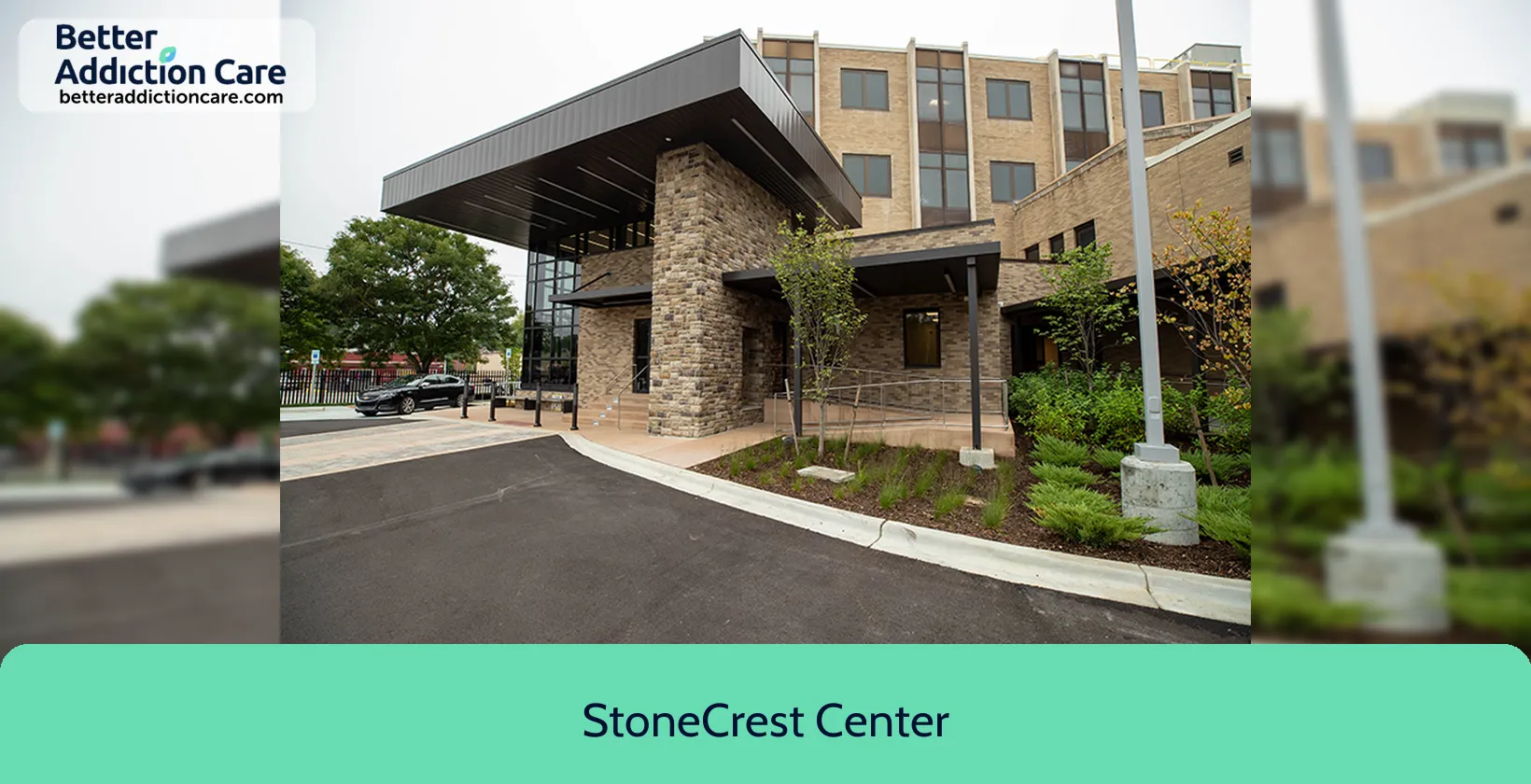
7.04
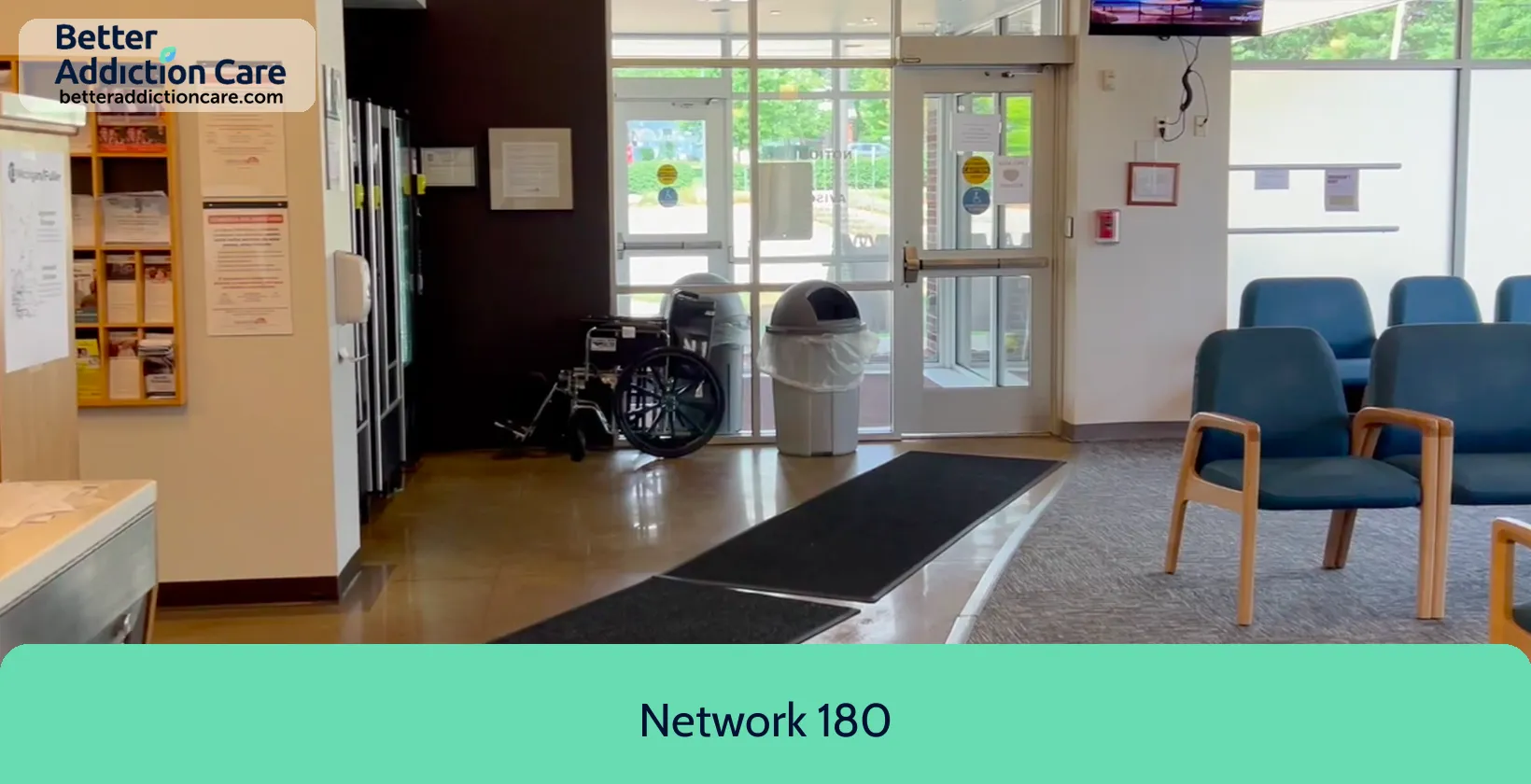
7.64

7.35
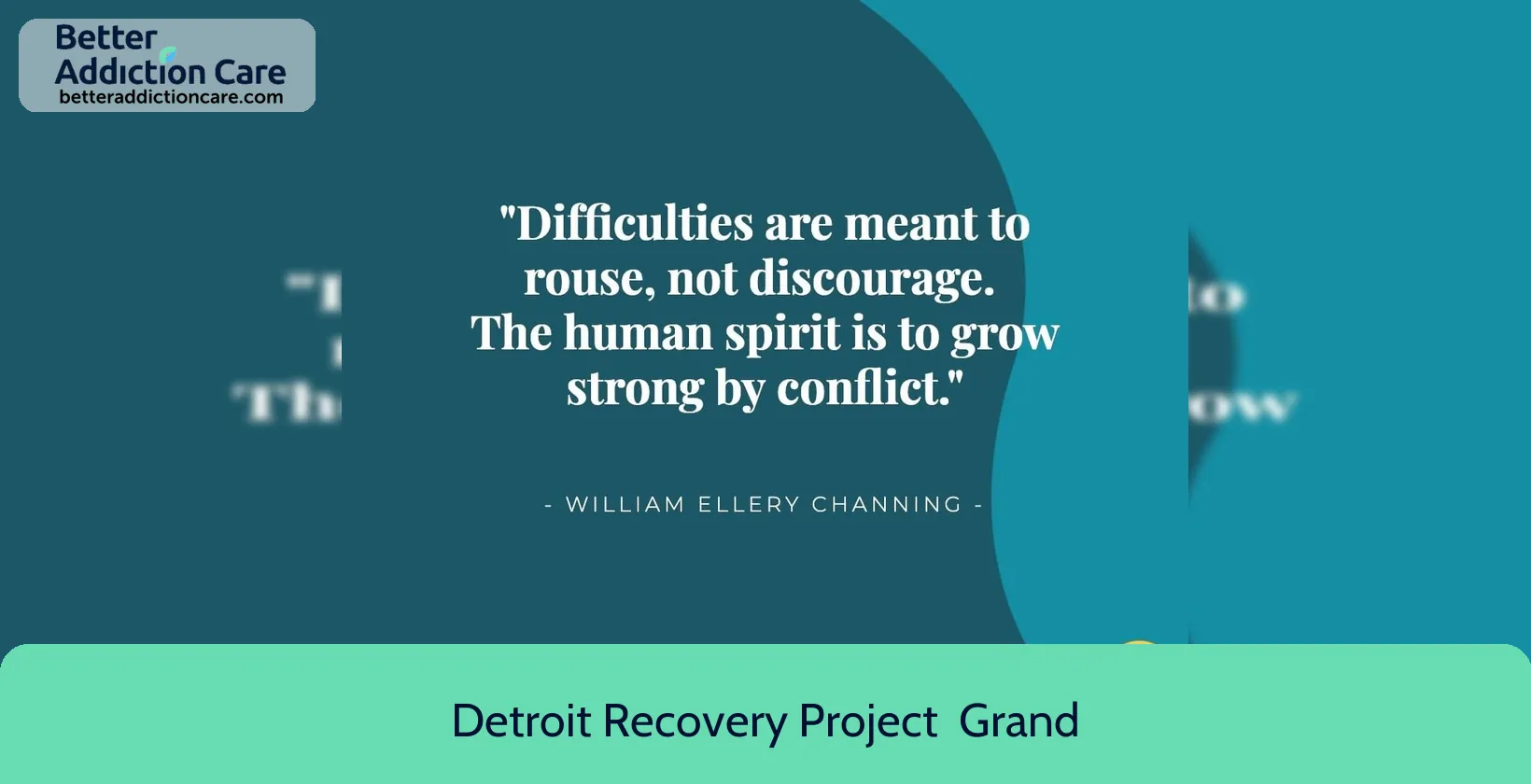
6.82
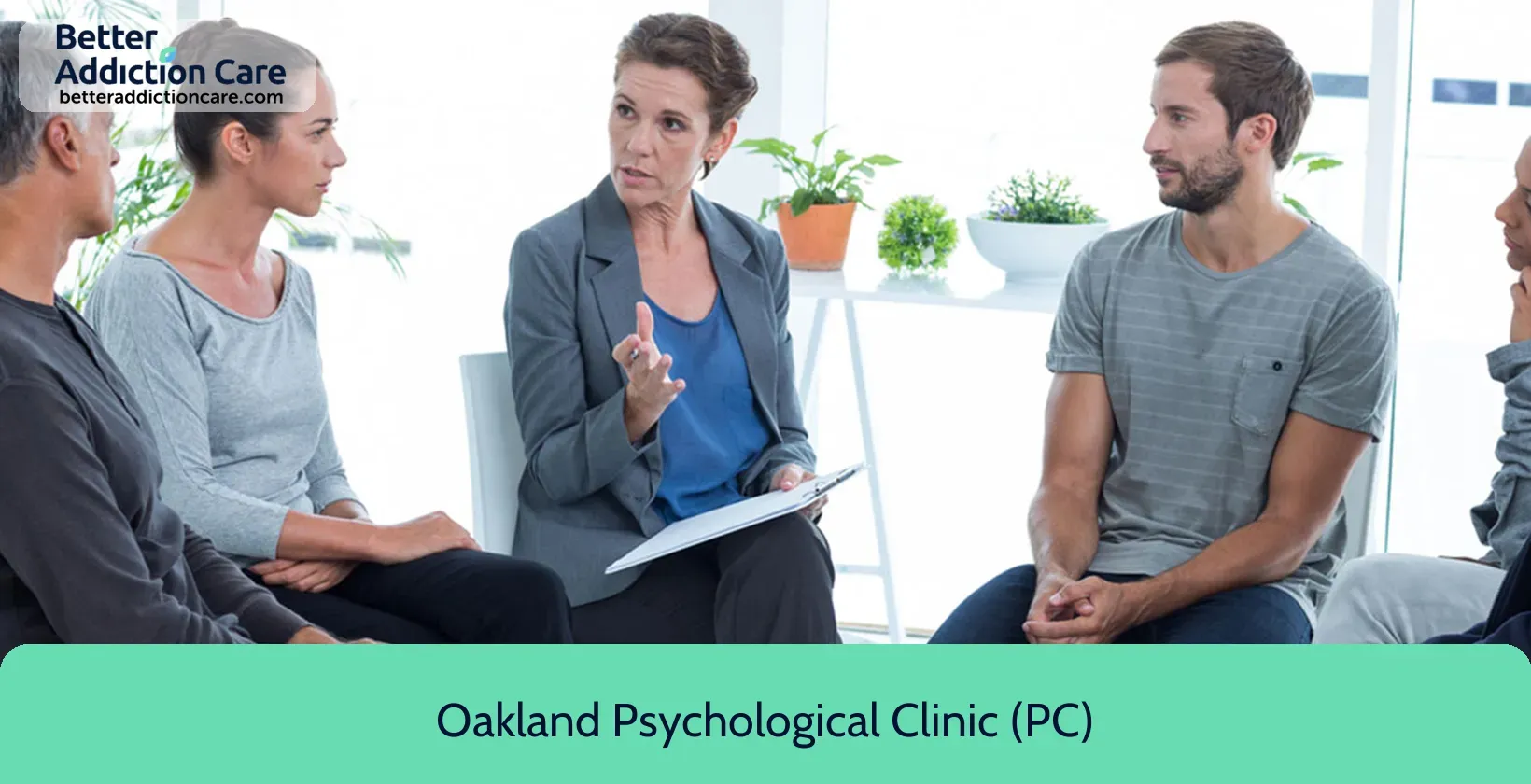
7.12
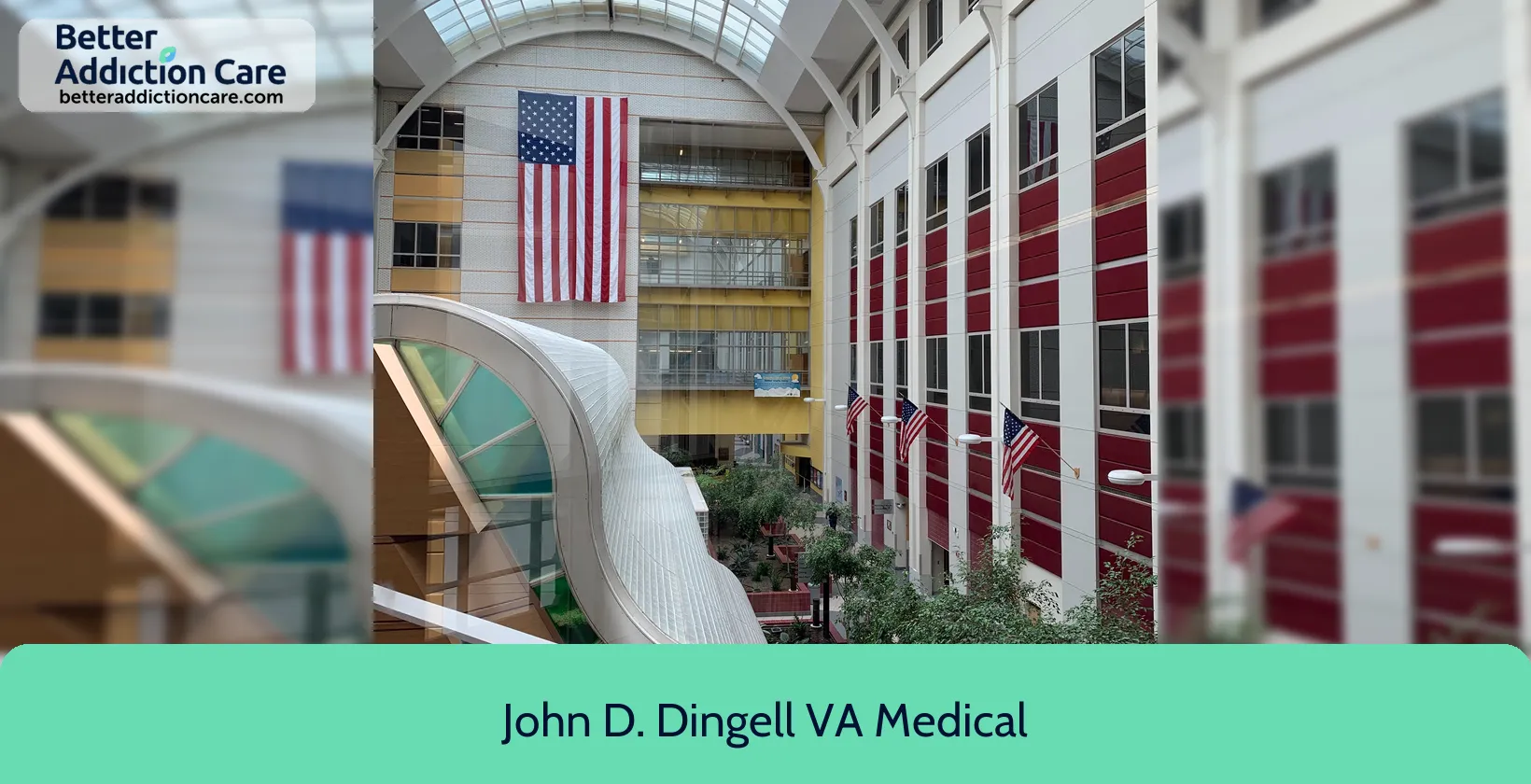
7.87
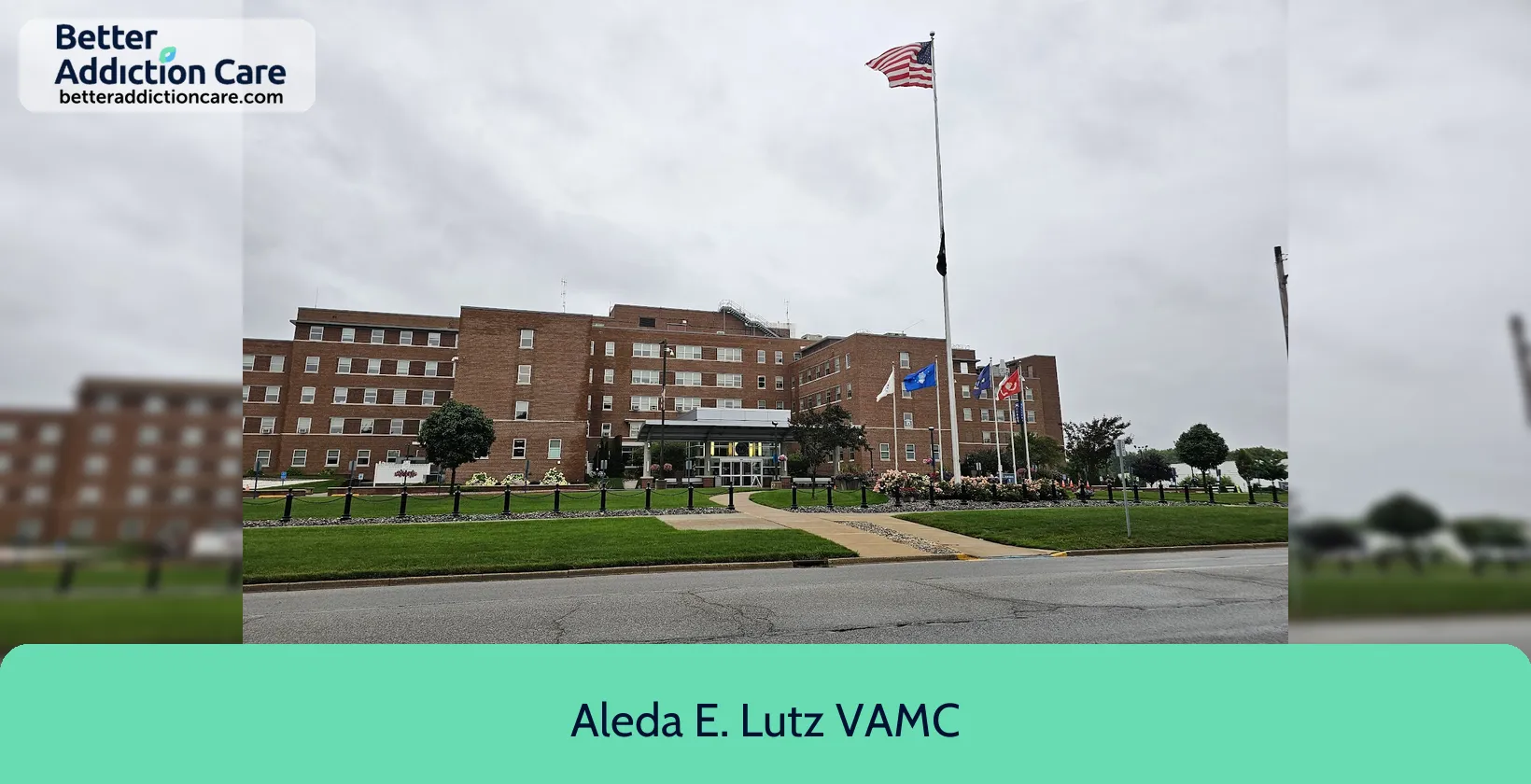
6.76
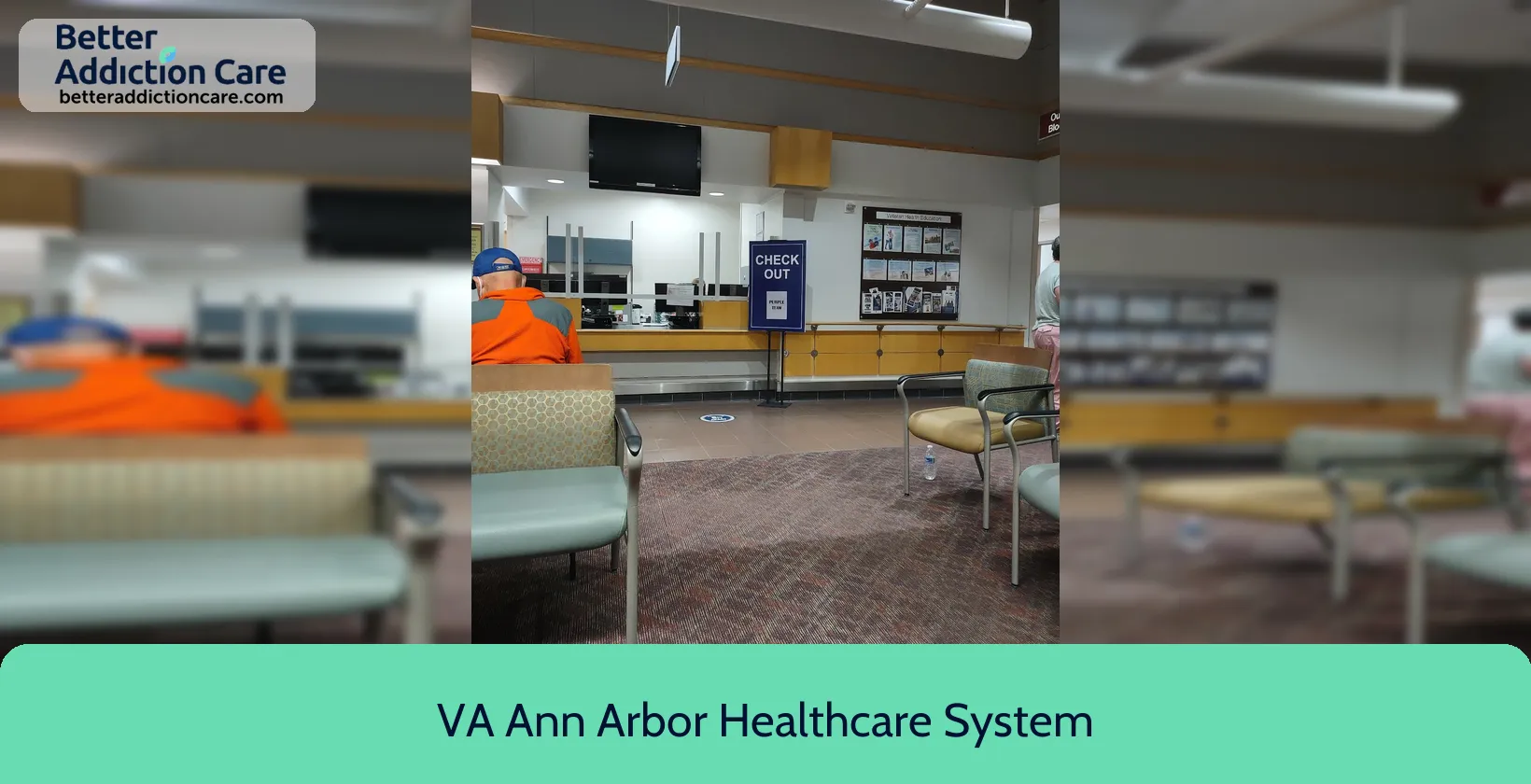
7.84
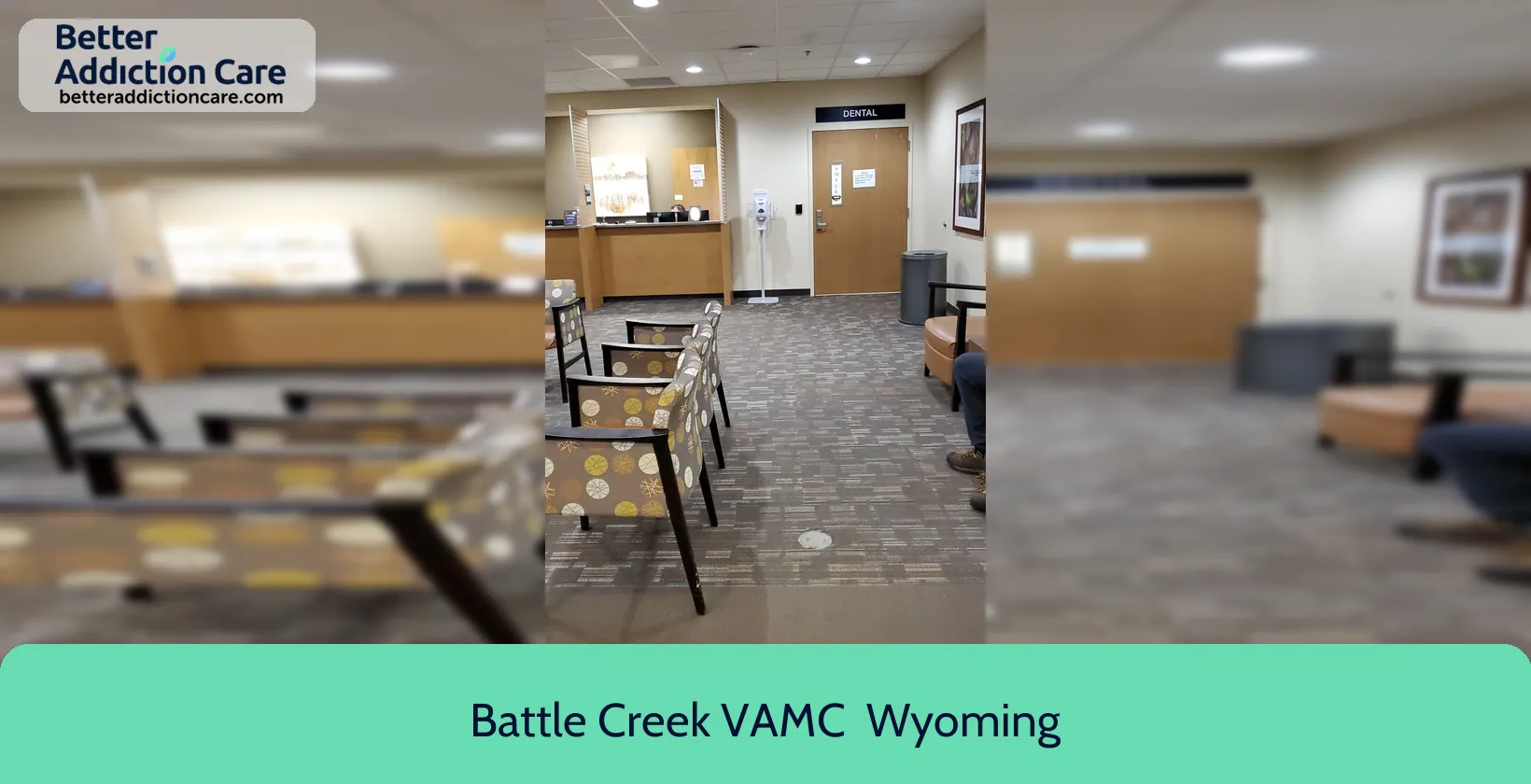
7.18
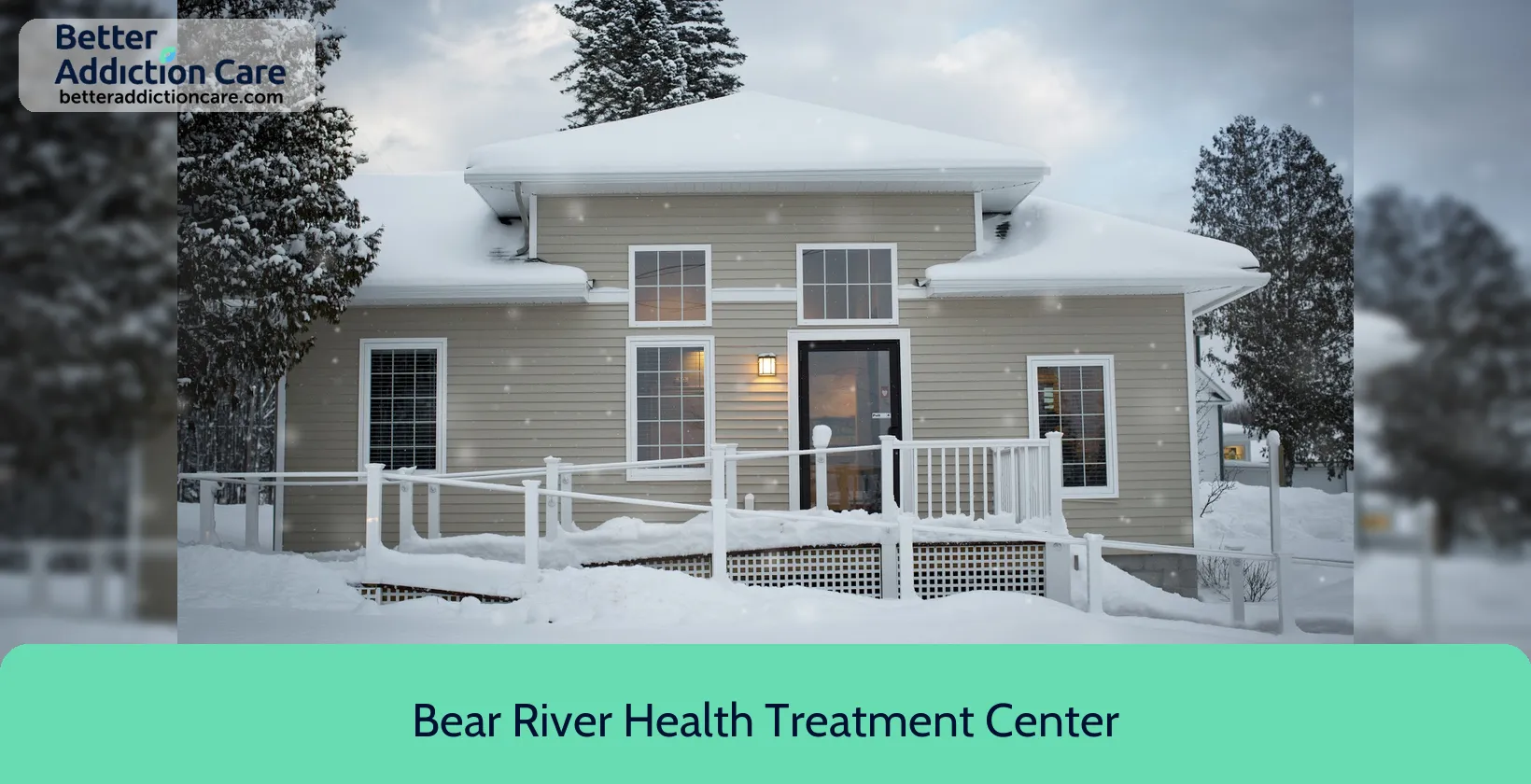
8.26
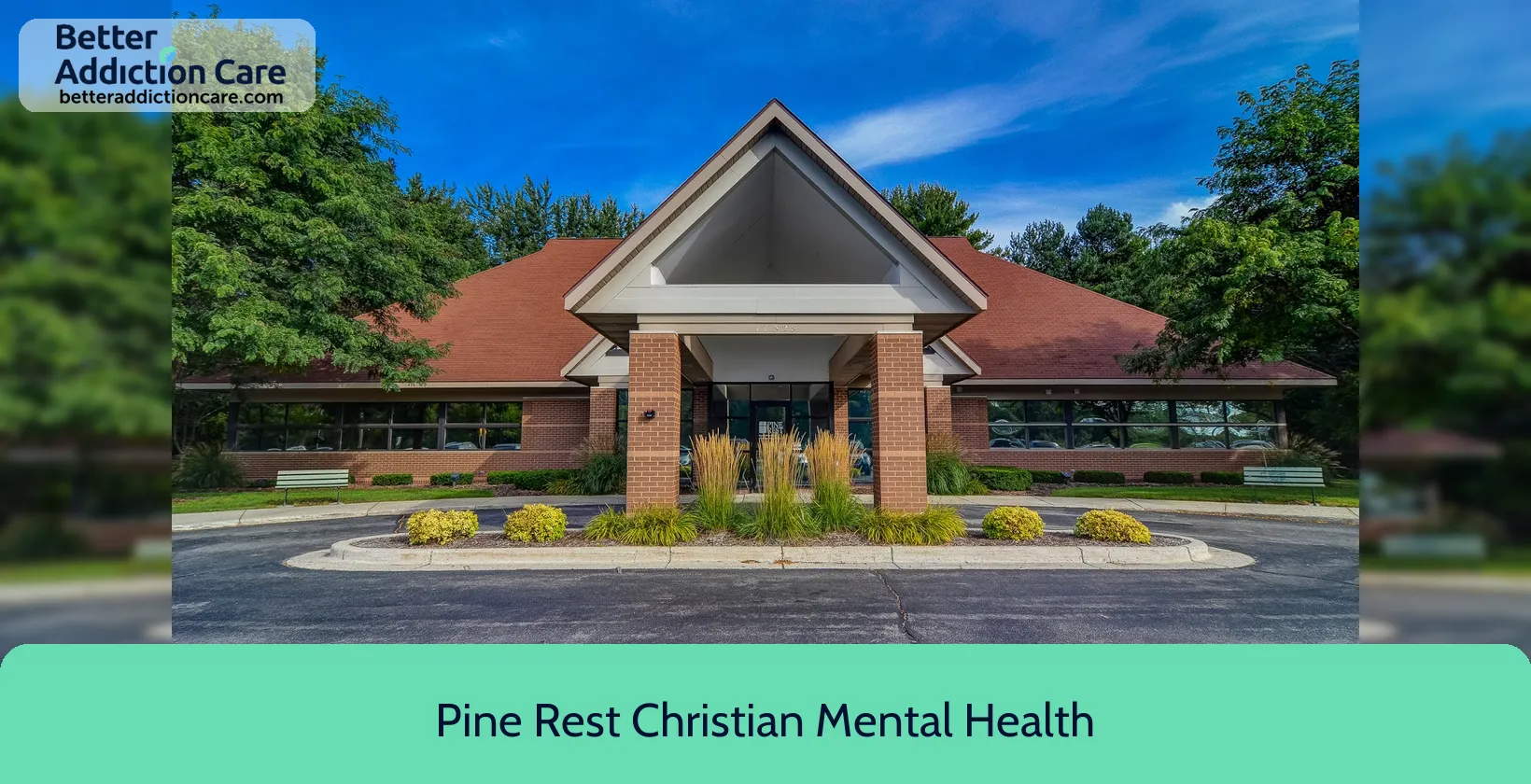
7.30
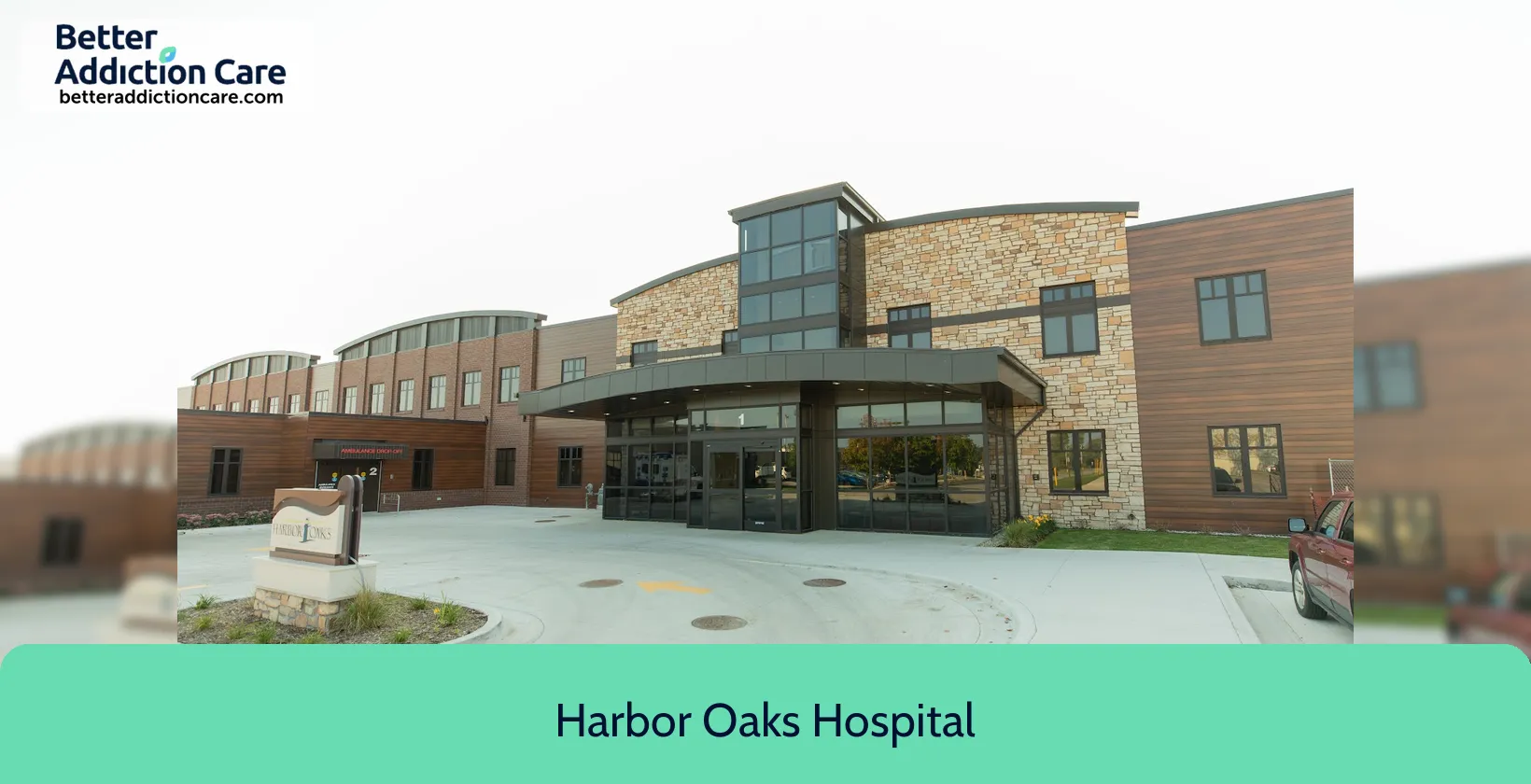
7.12
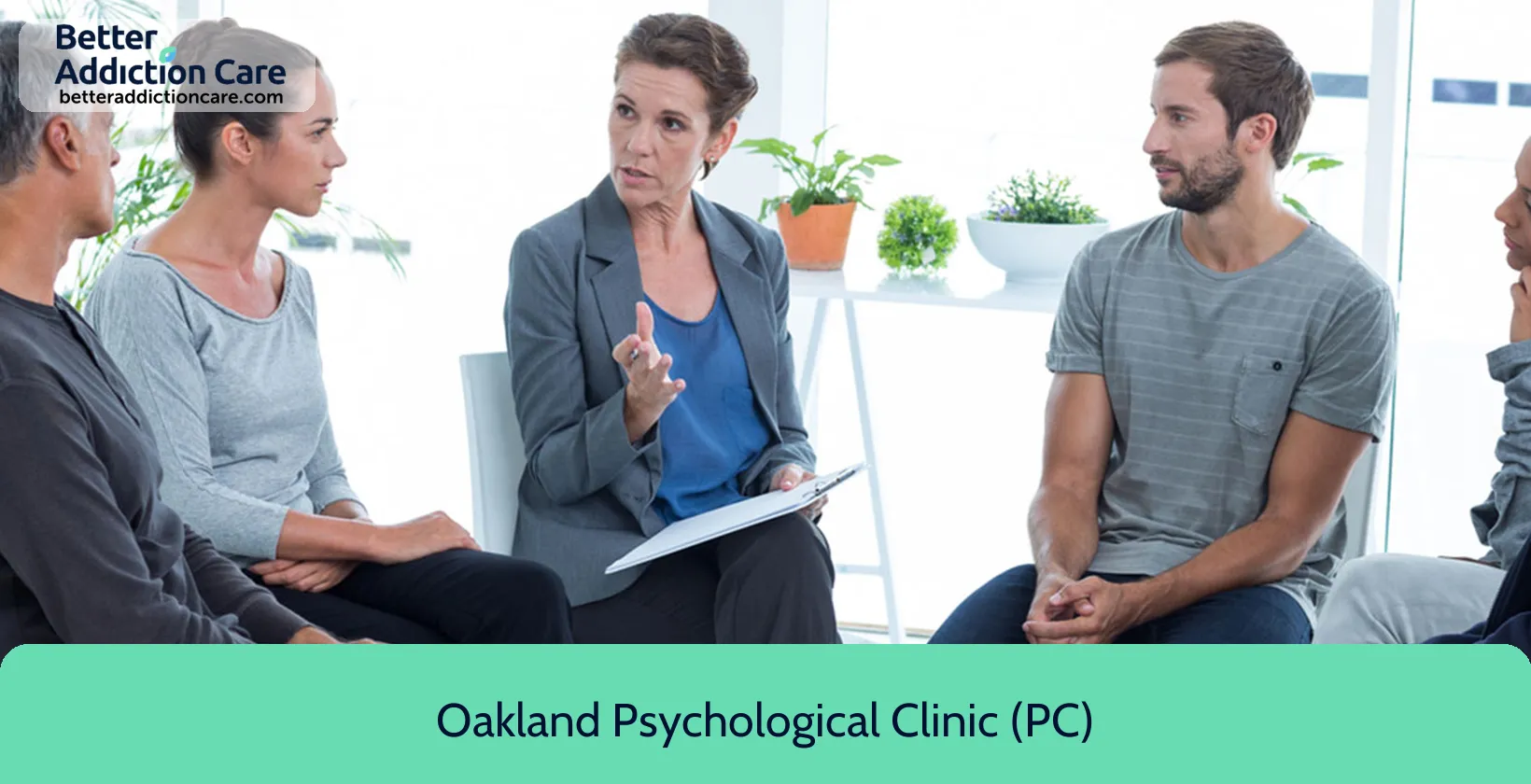
7.12

7.05
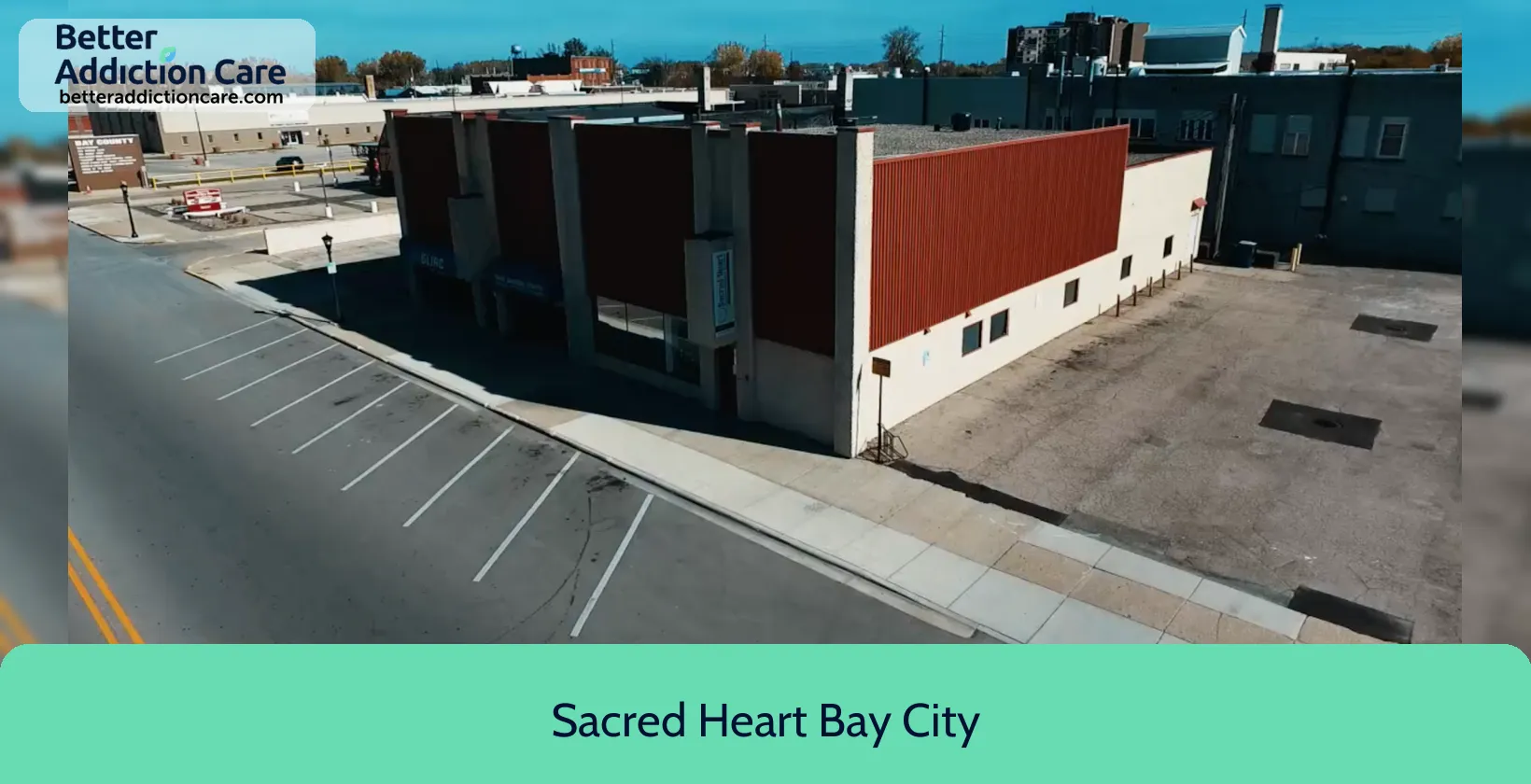
7.15
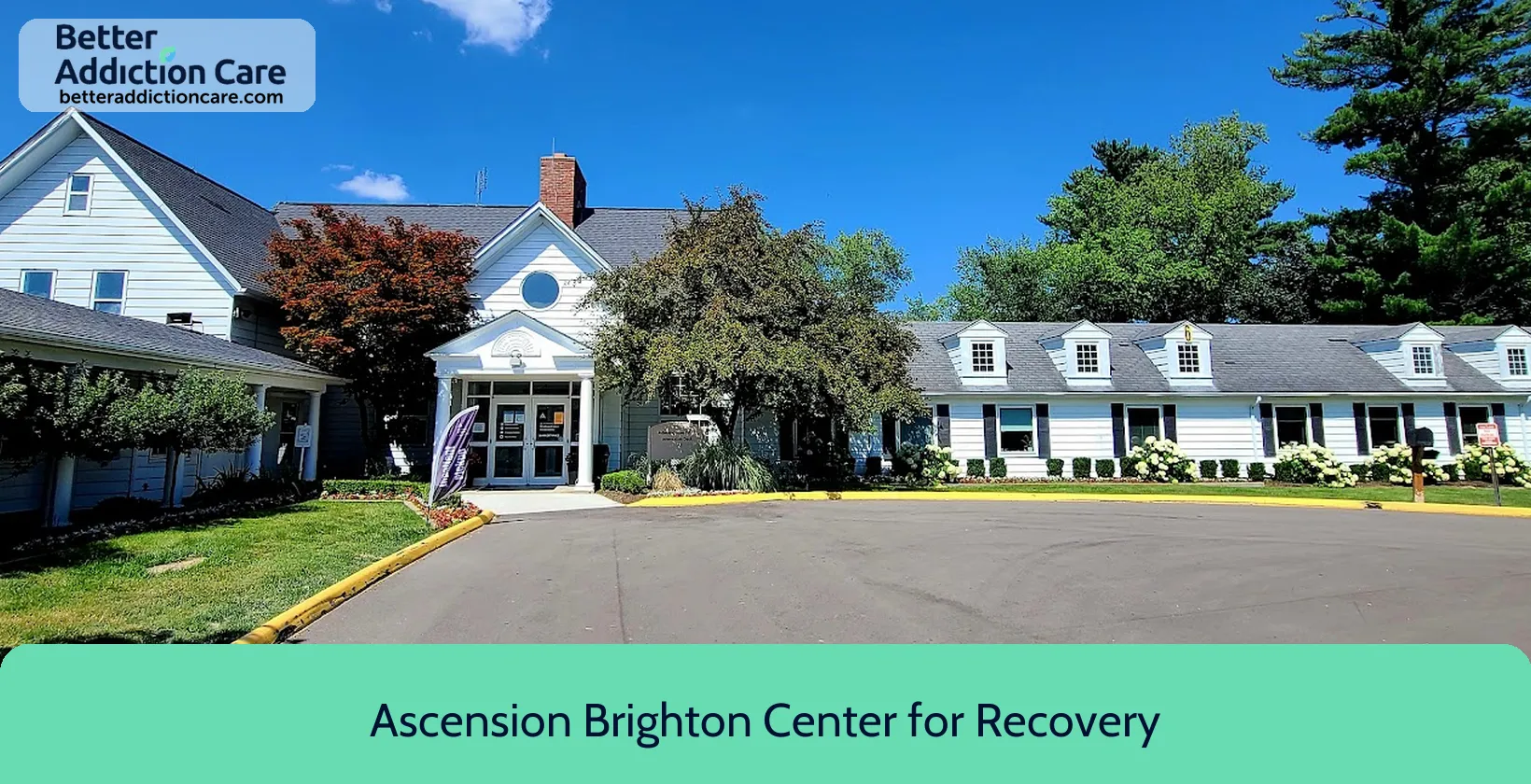
7.84
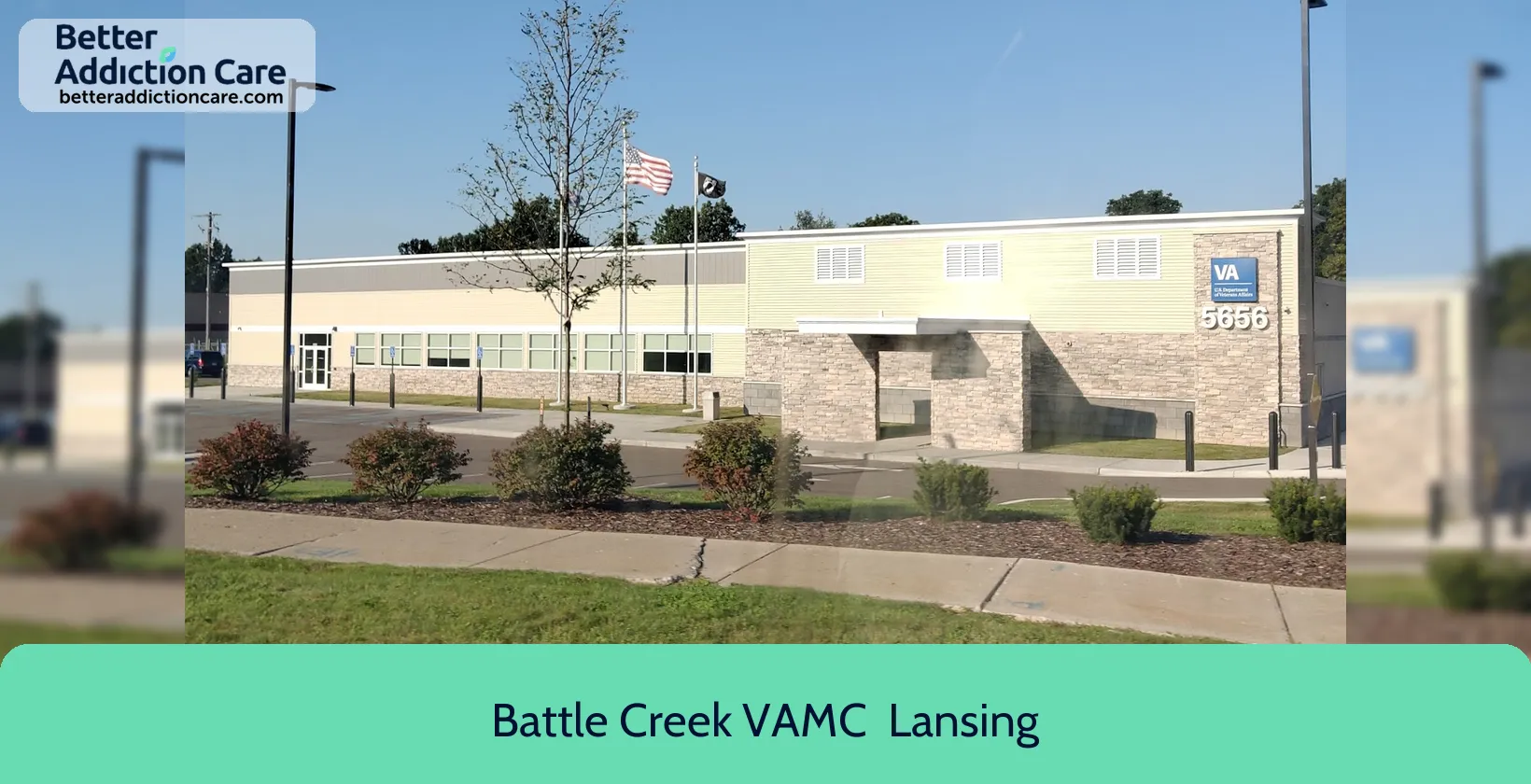
6.82
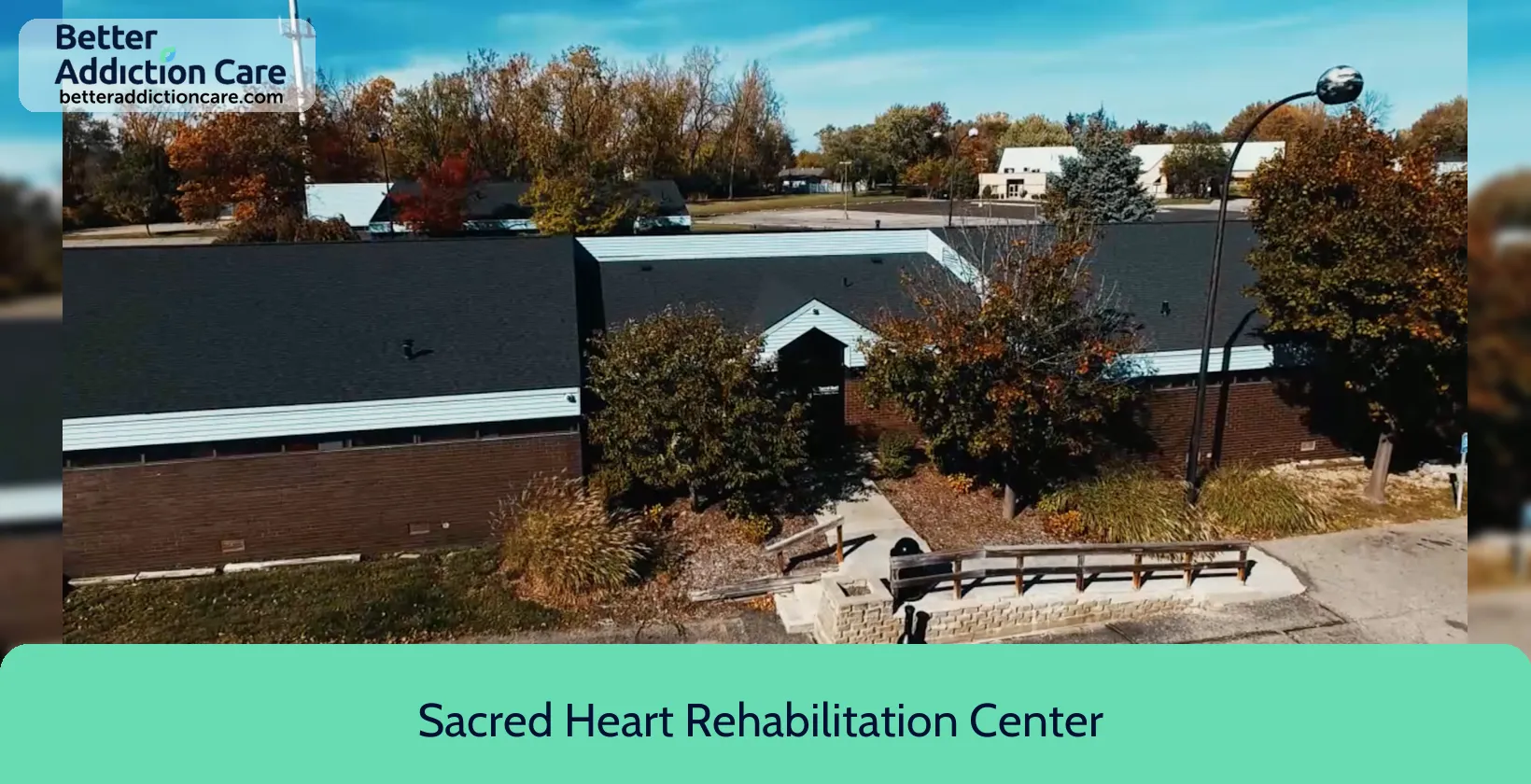
7.84
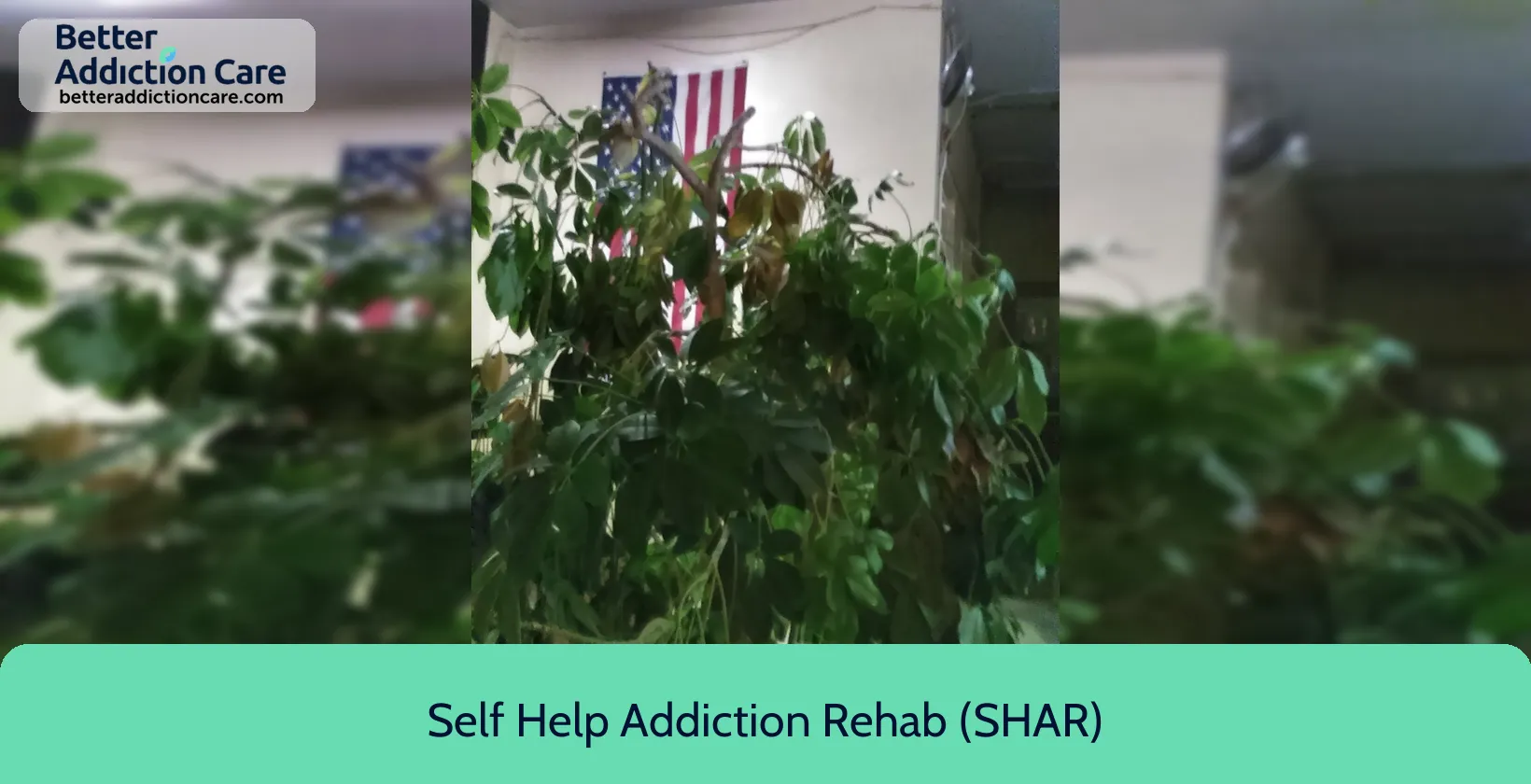
7.22
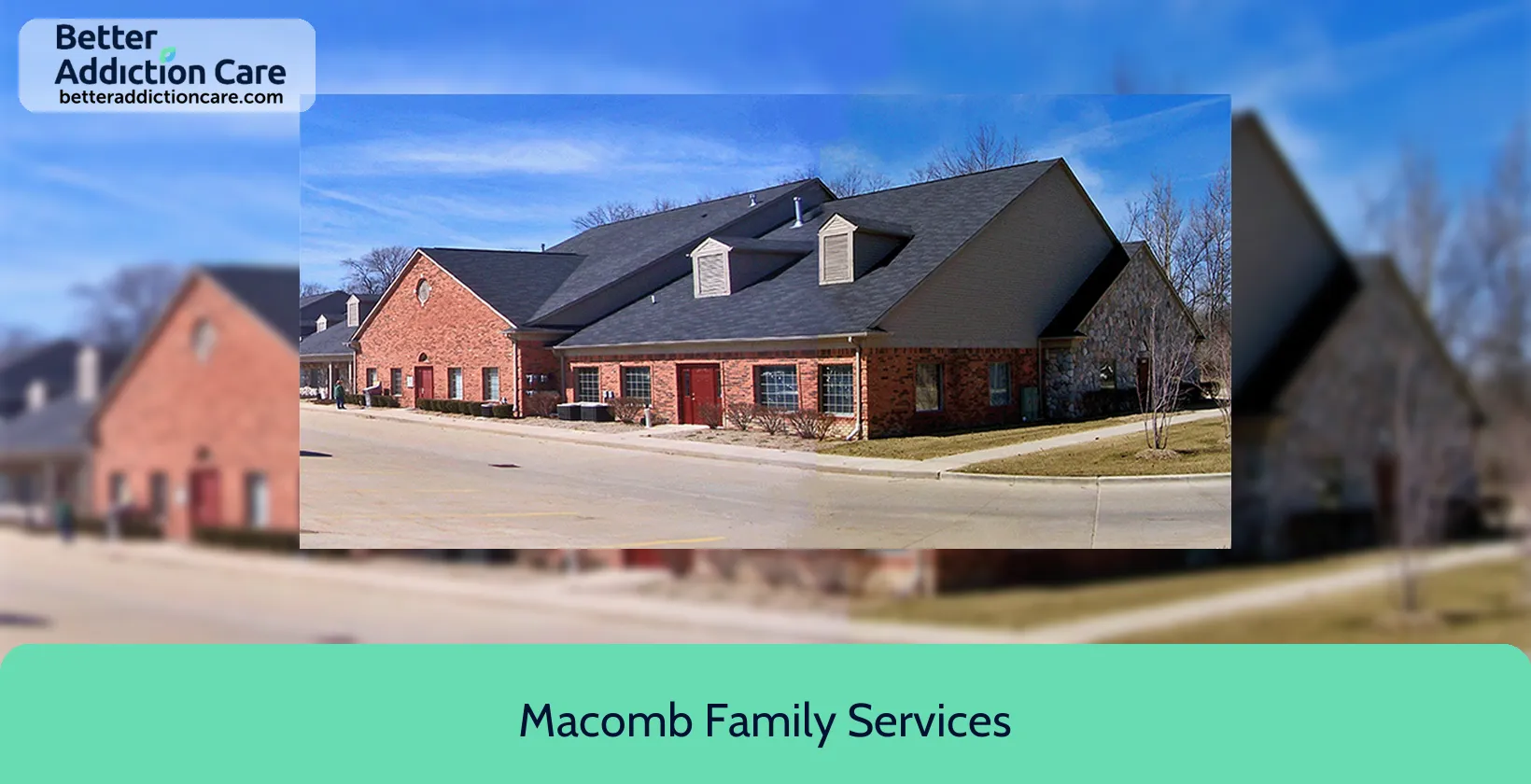
7.30
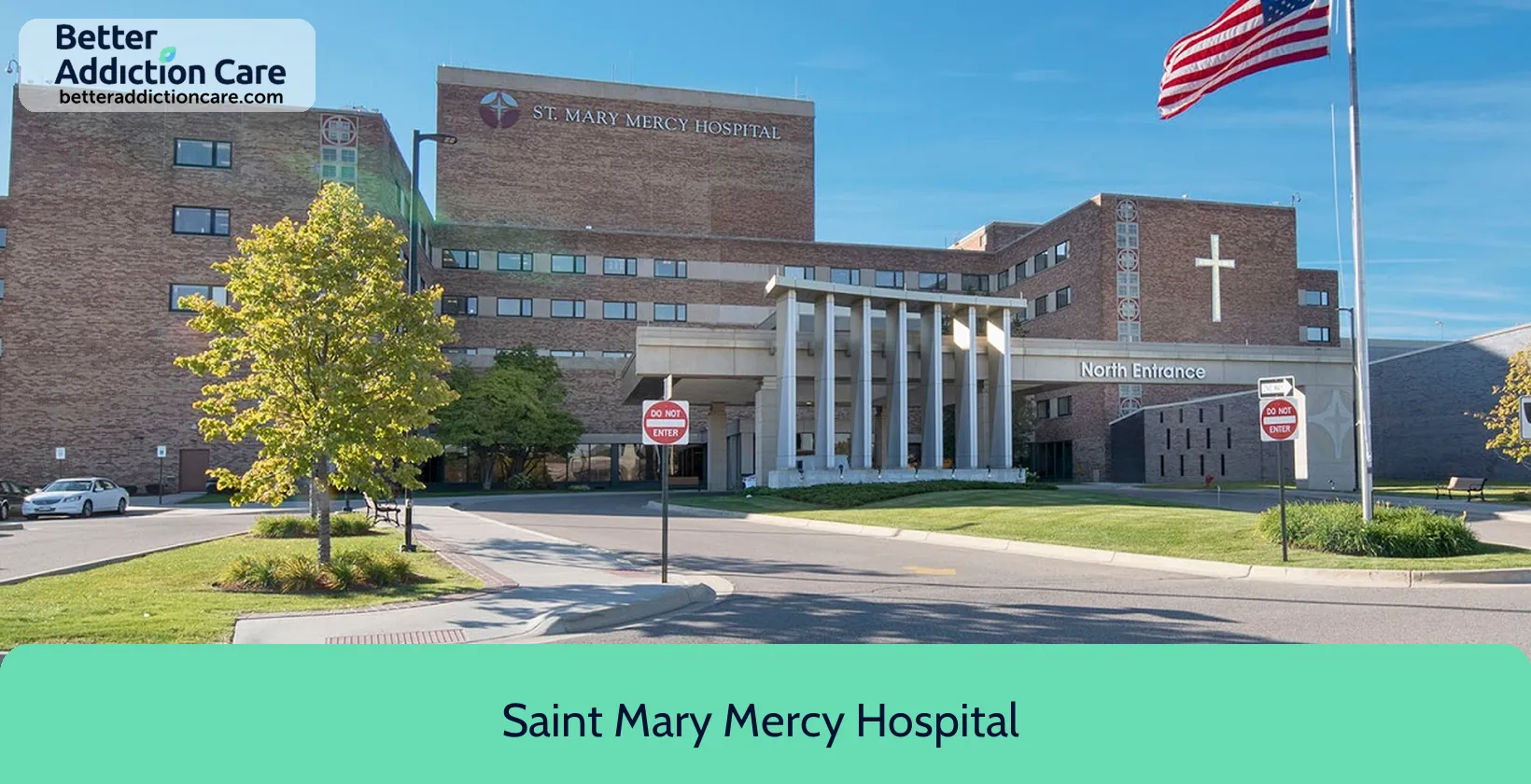
7.57
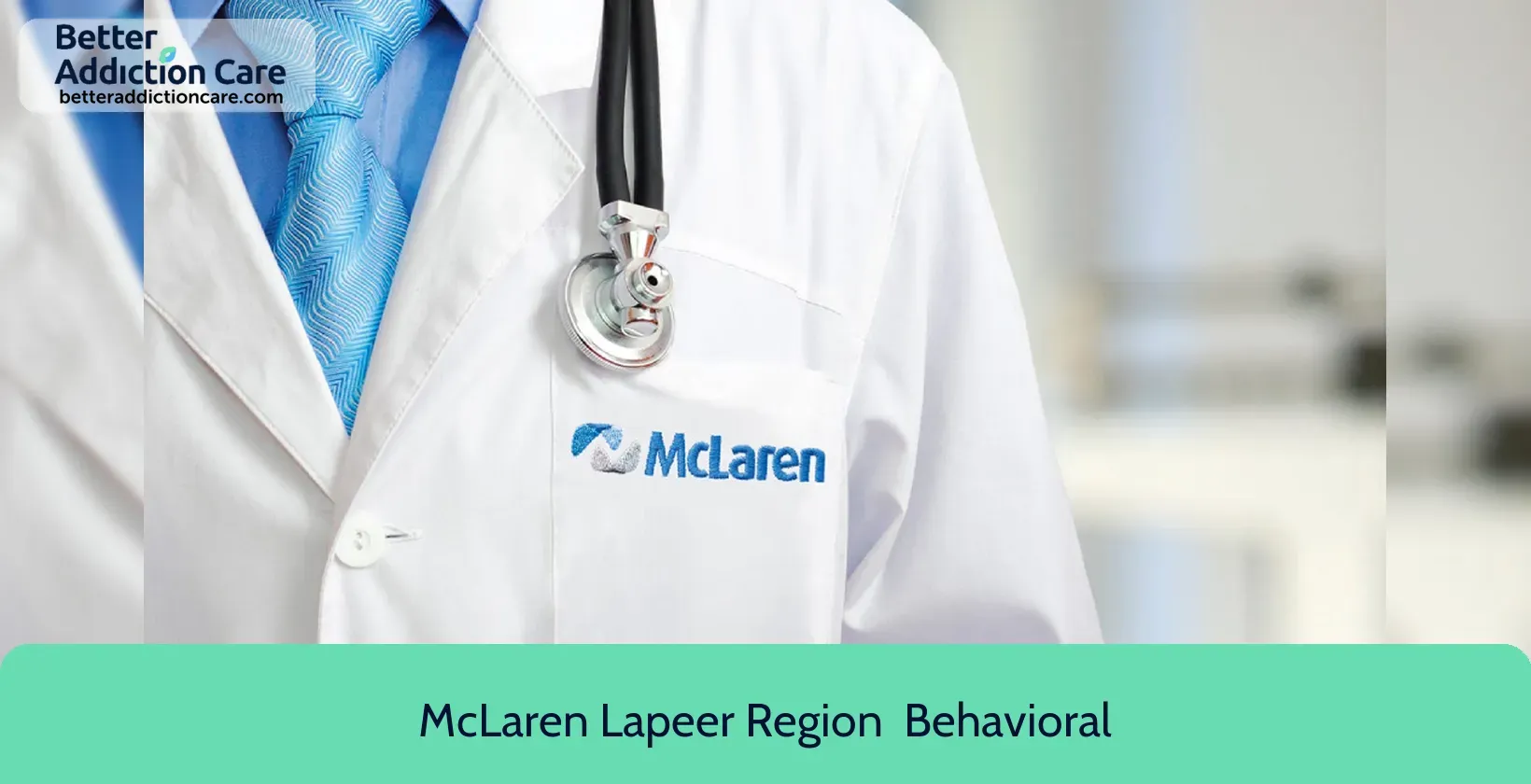
6.85
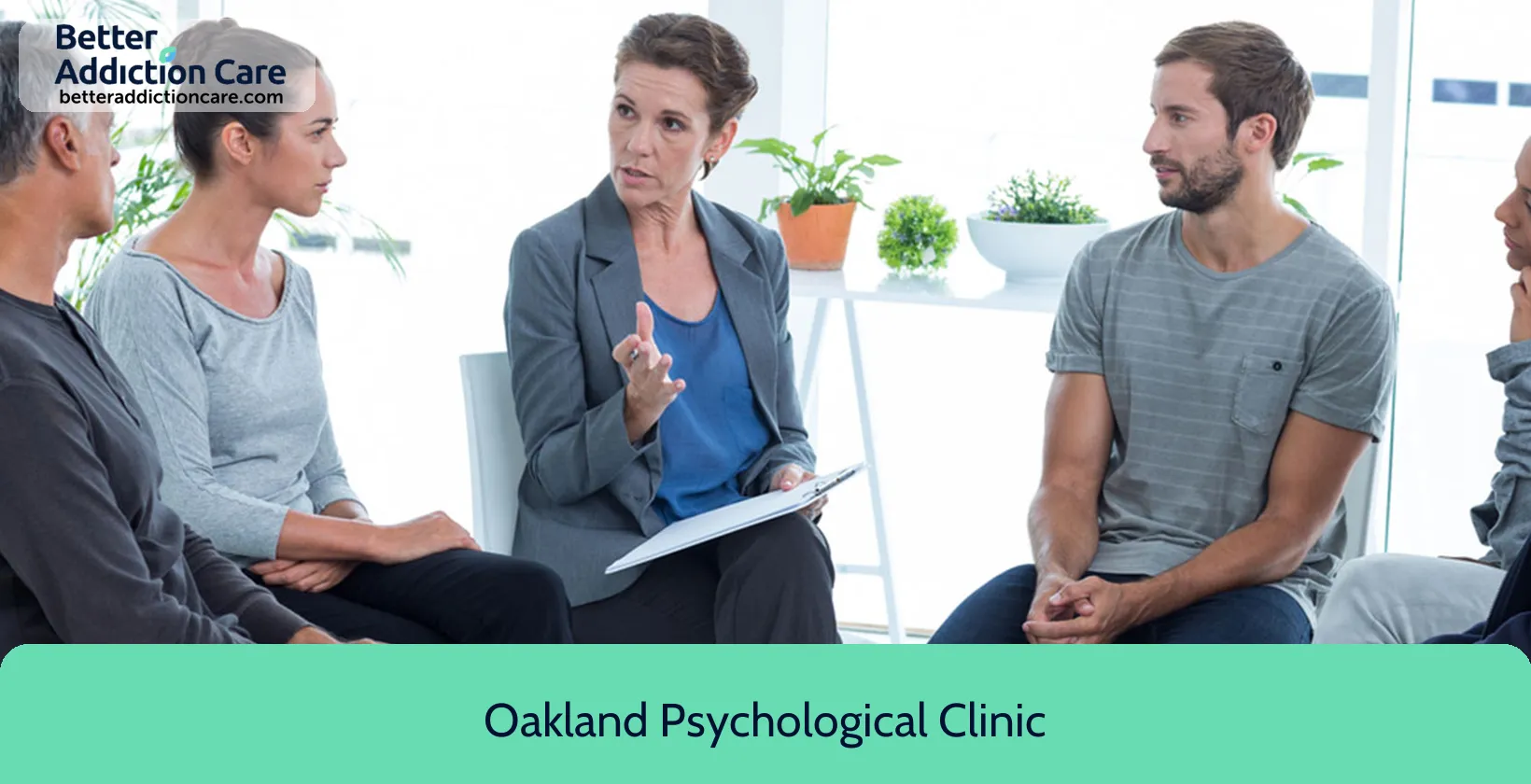
7.29
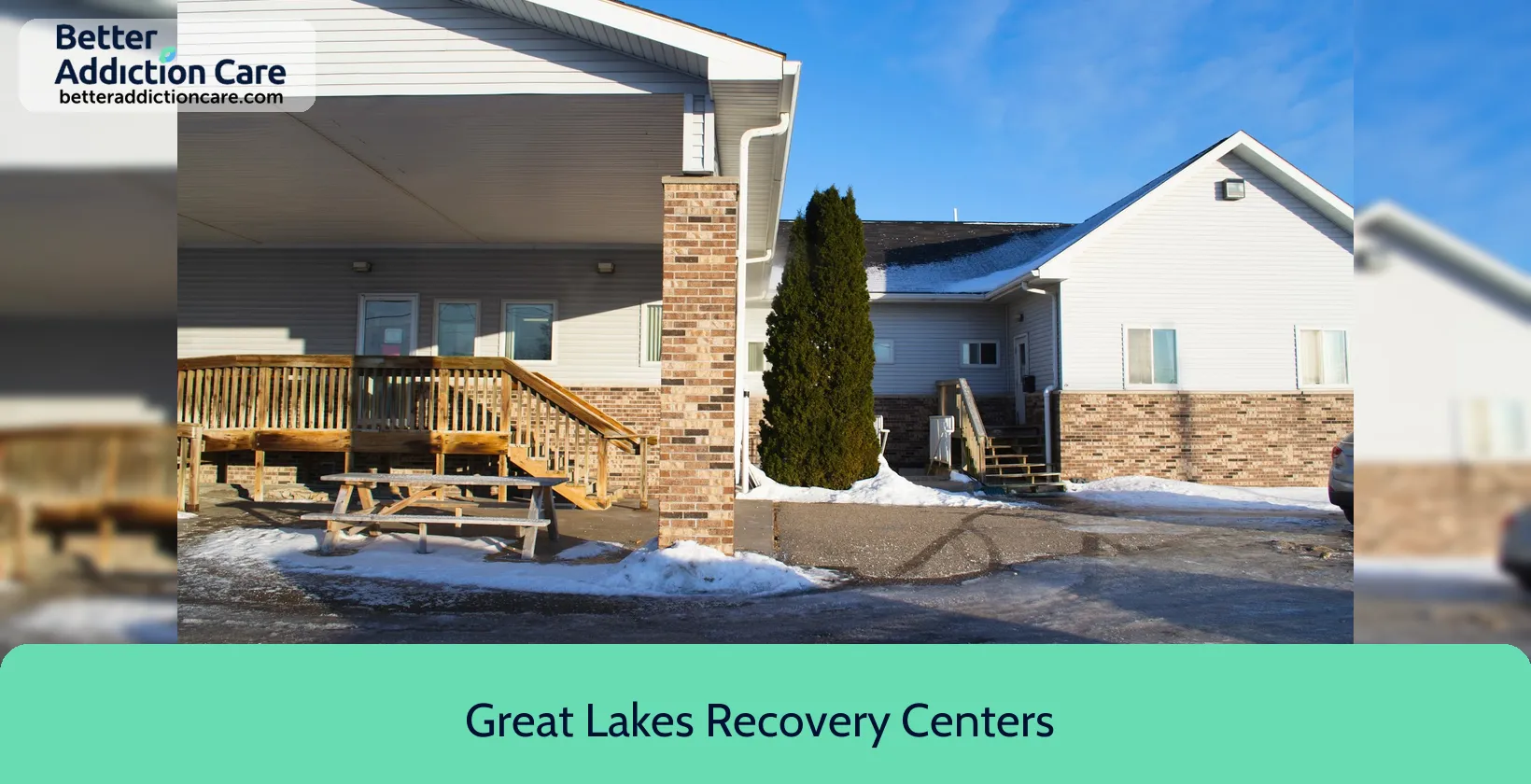
7.51
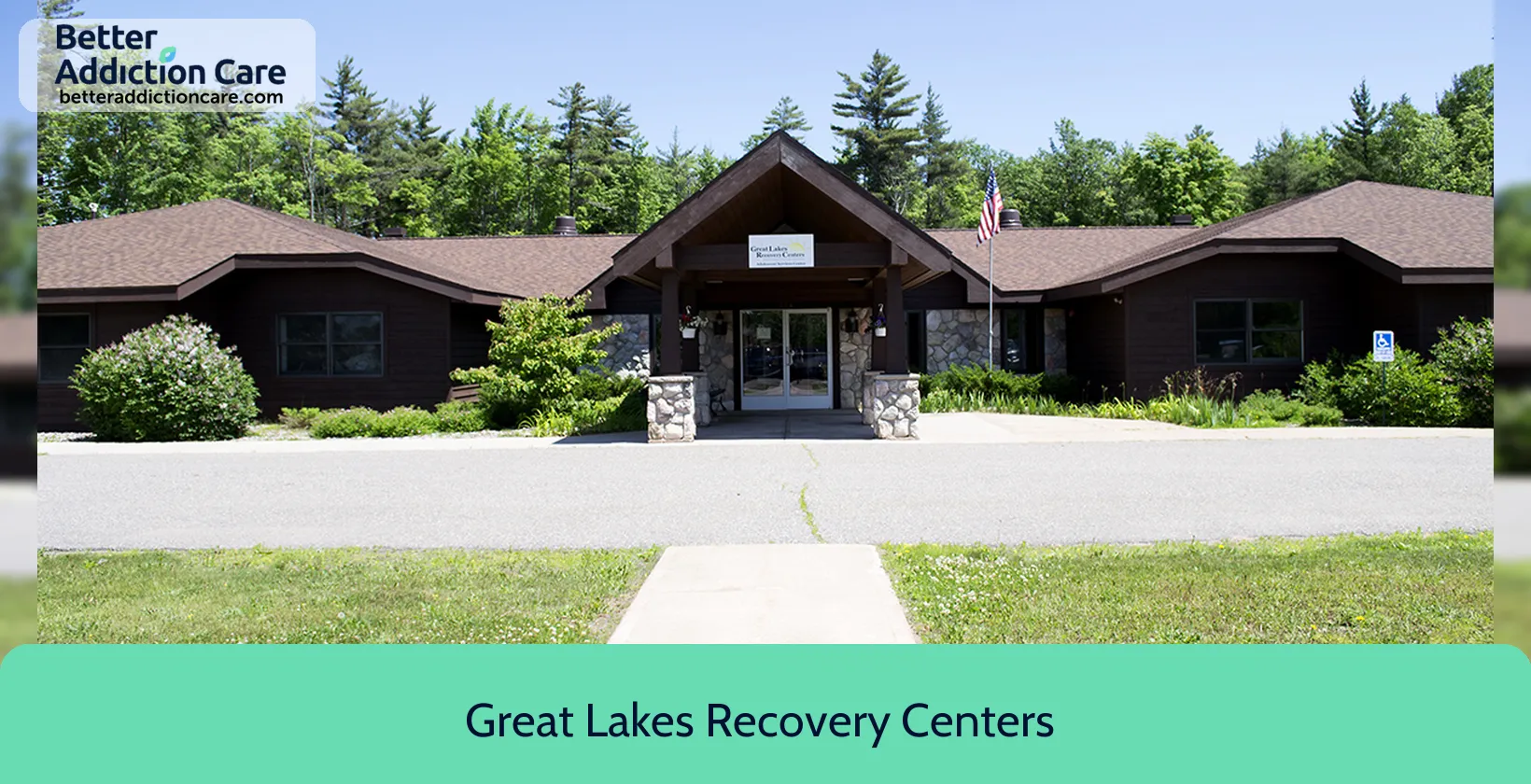
7.29

6.91
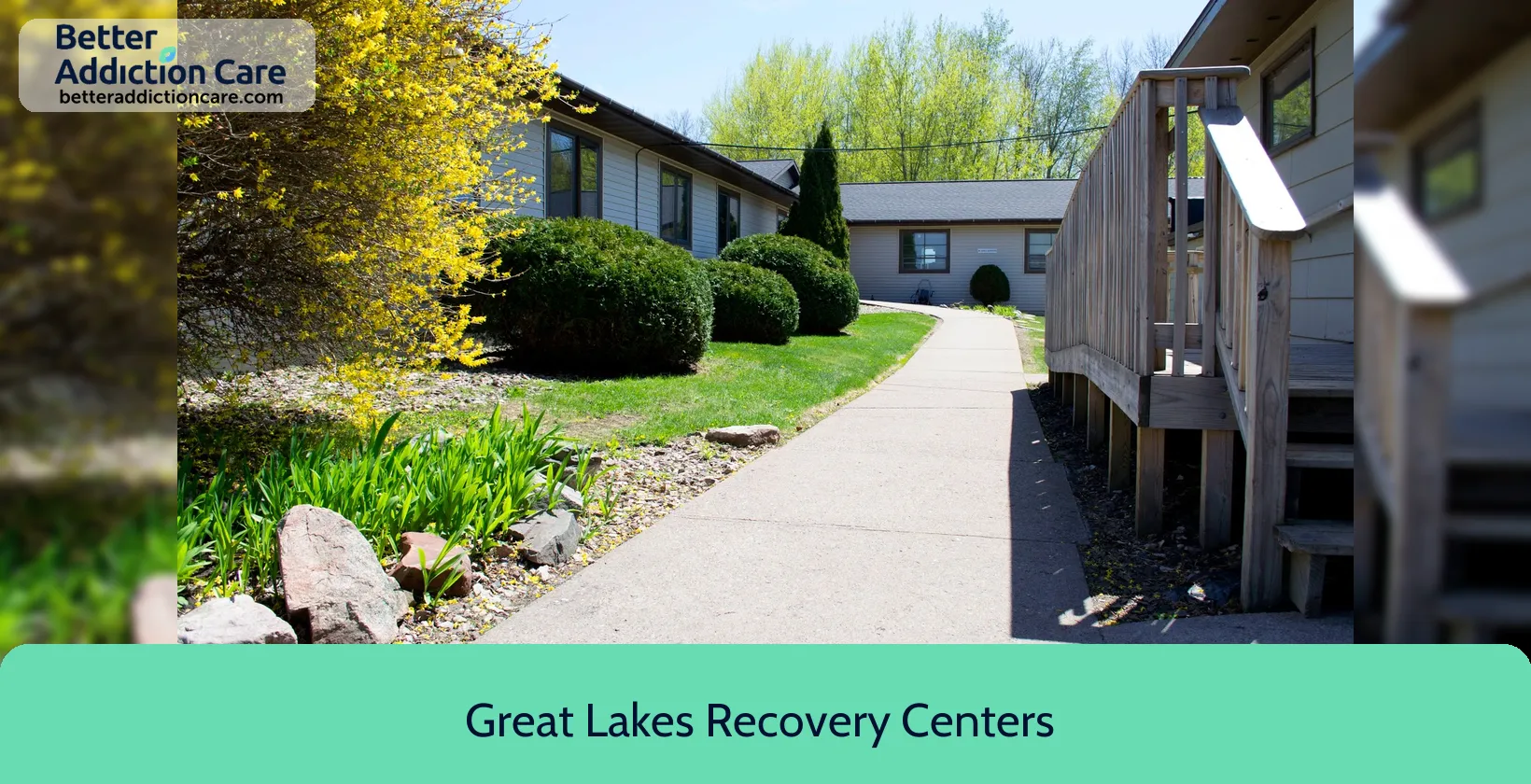
7.38

7.58
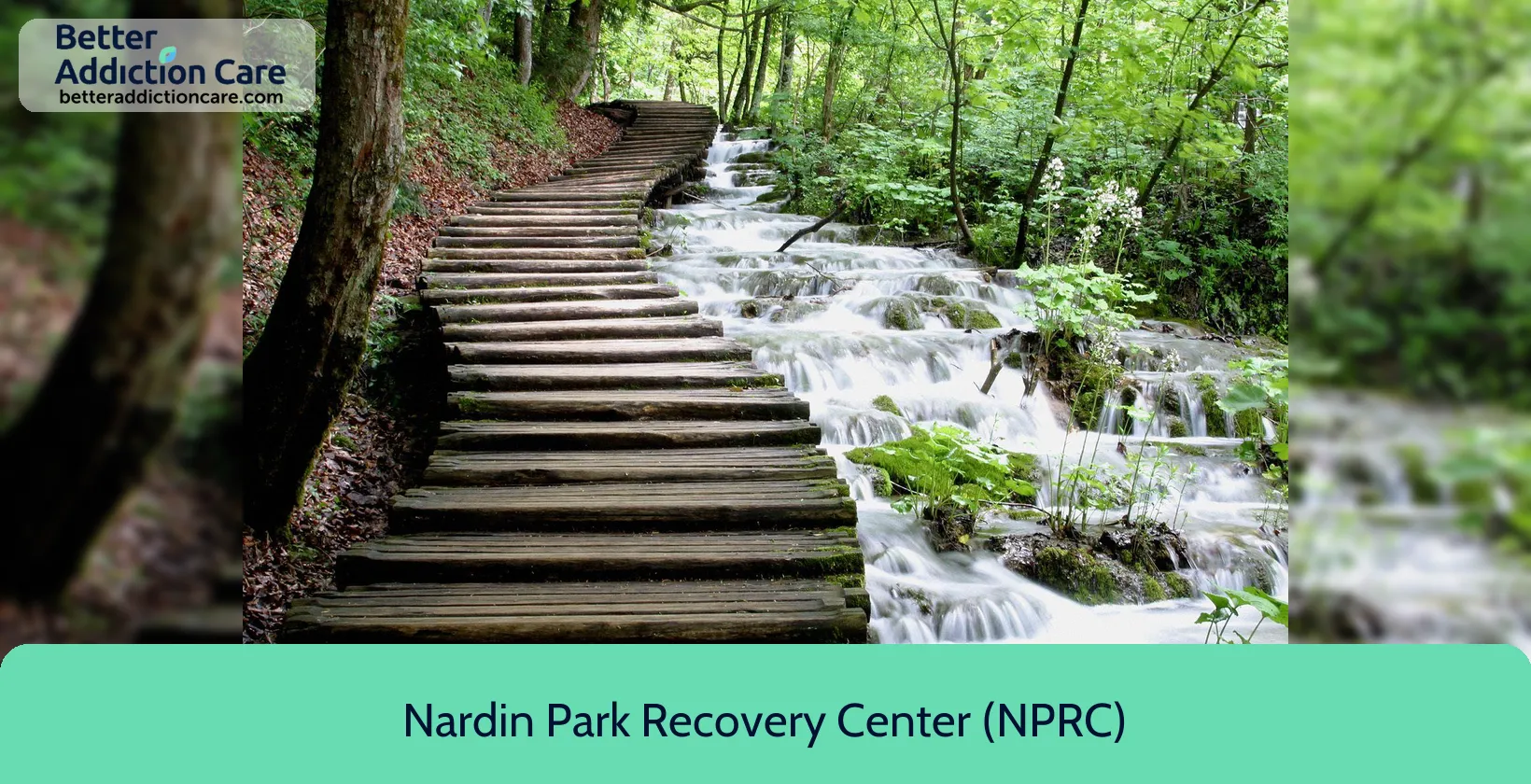
7.26
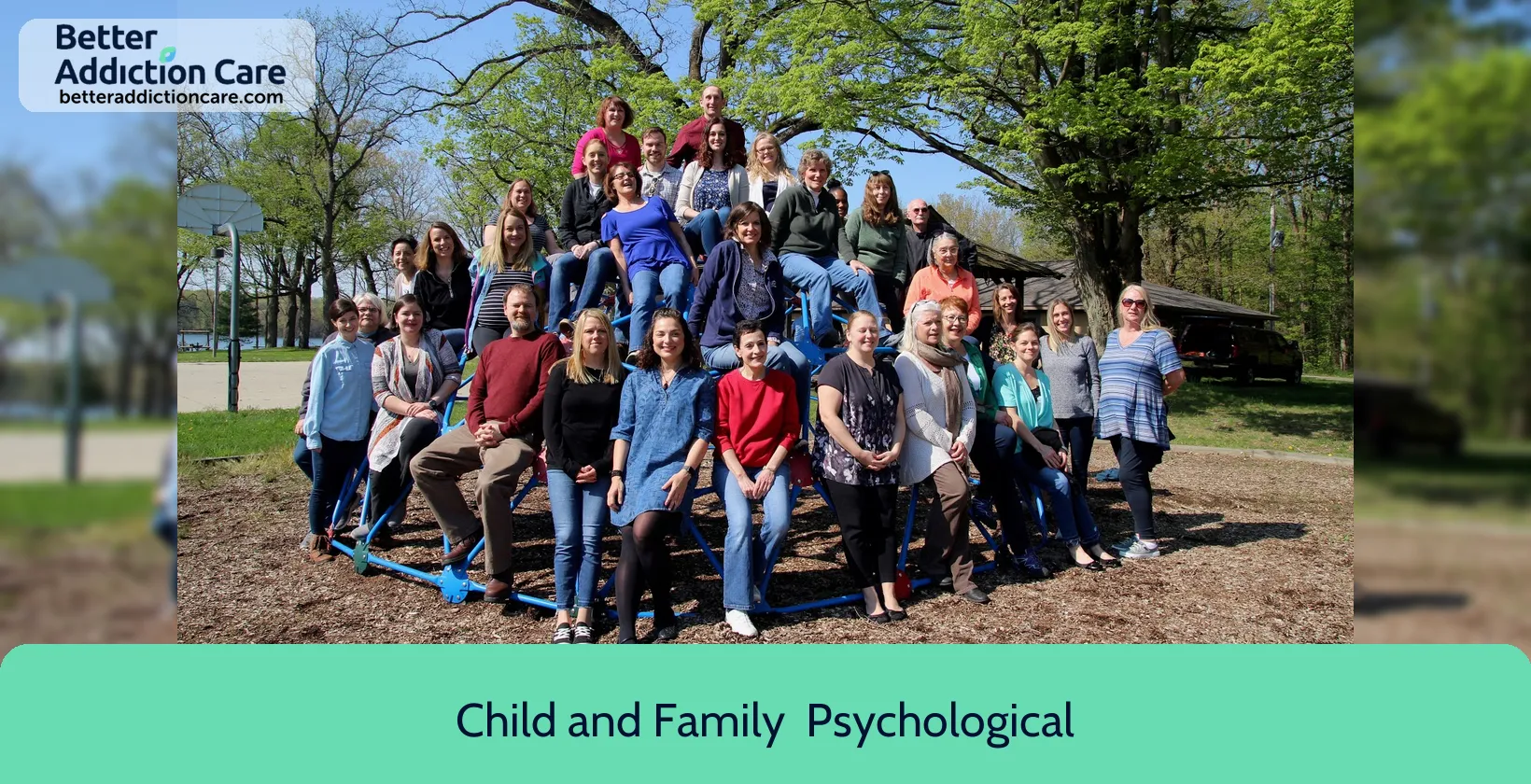
6.88
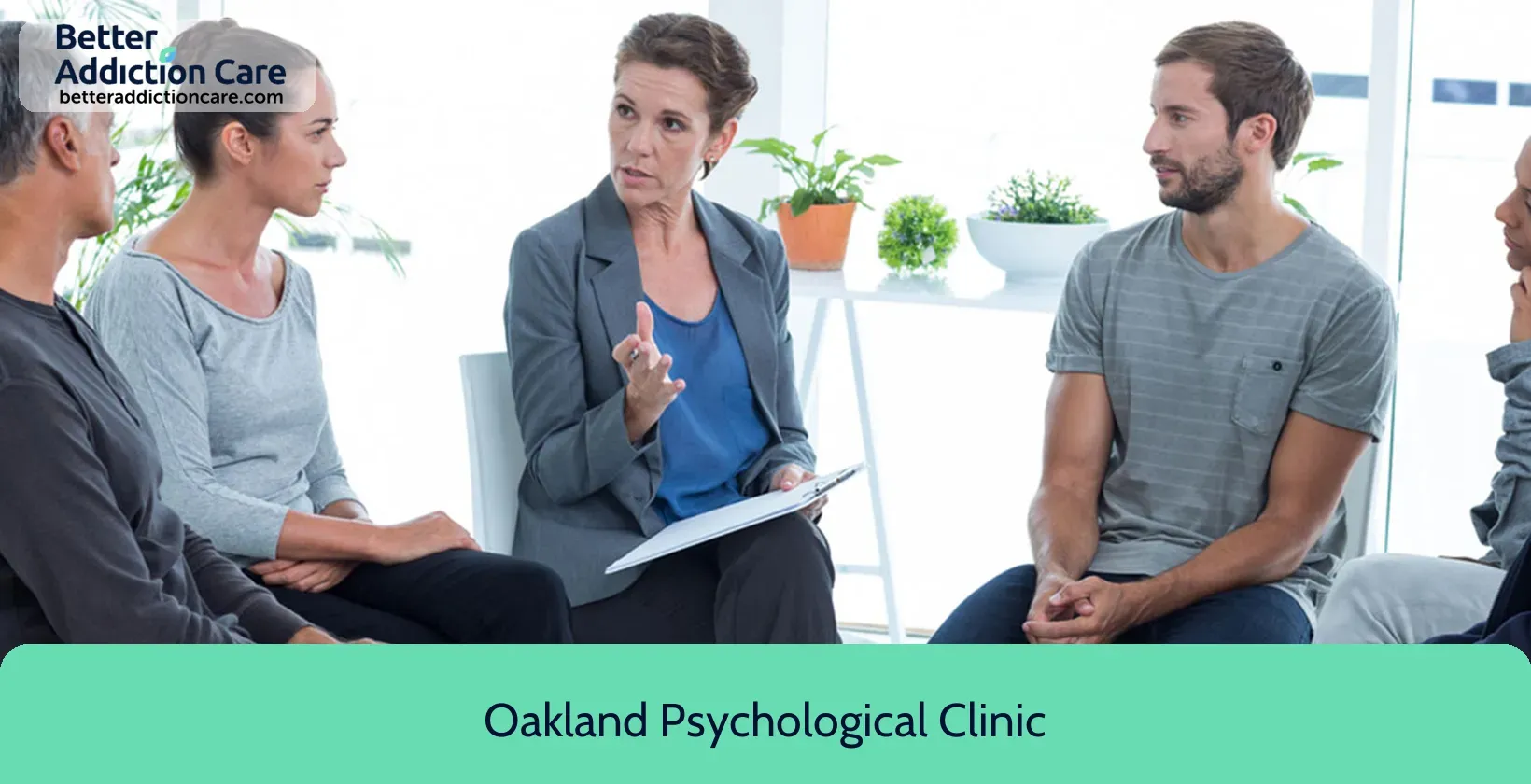
6.94
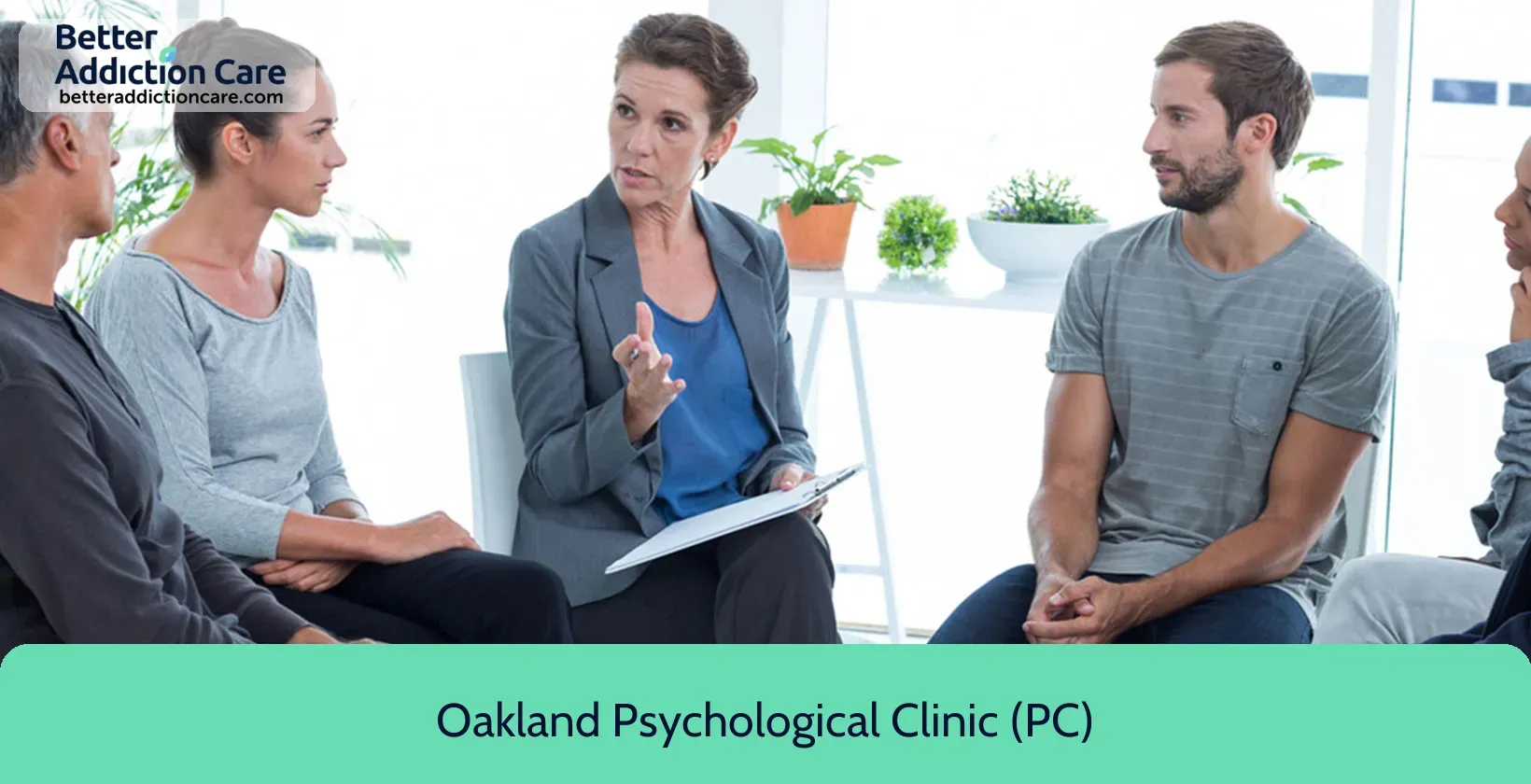
7.09
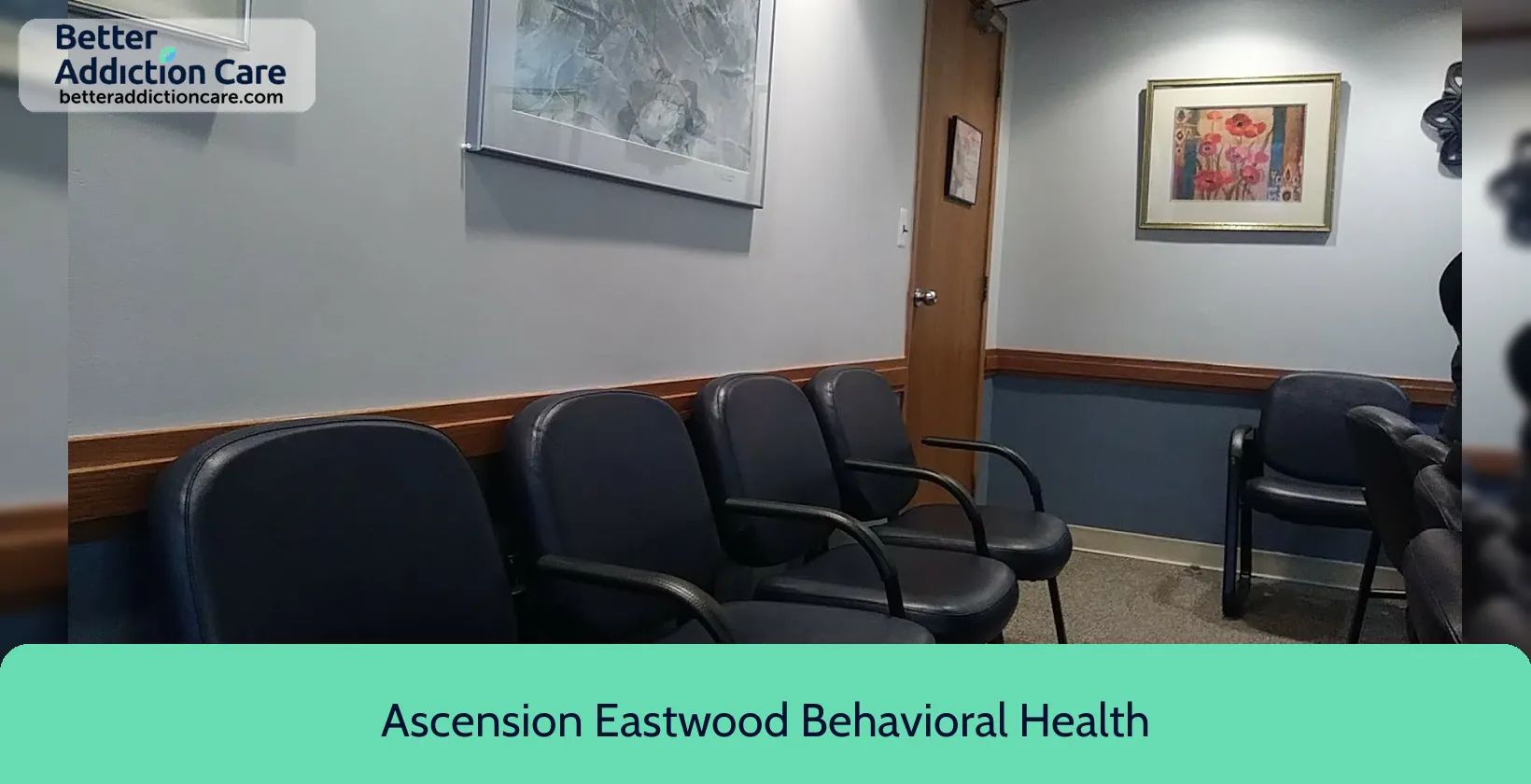
7.06
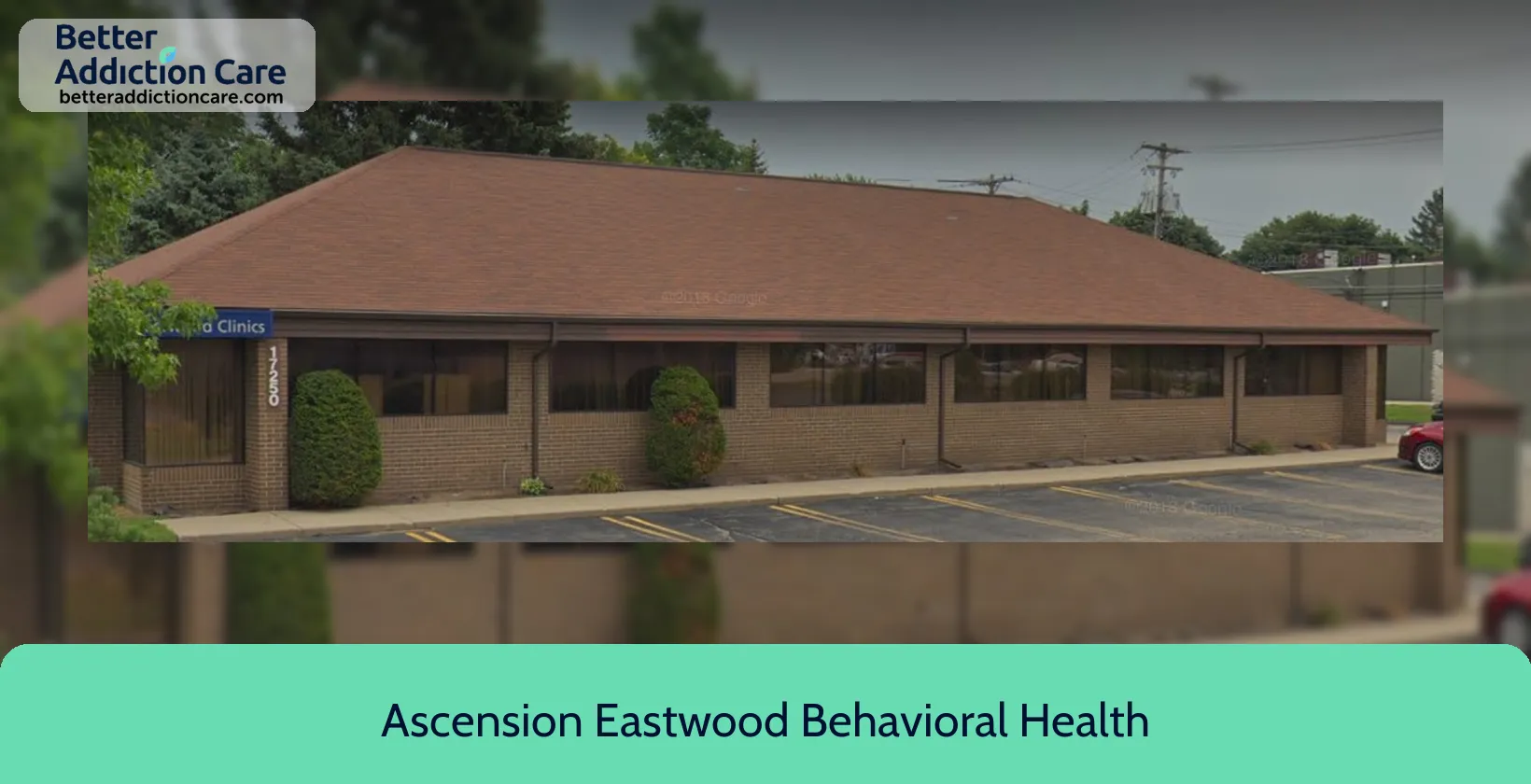
7.06
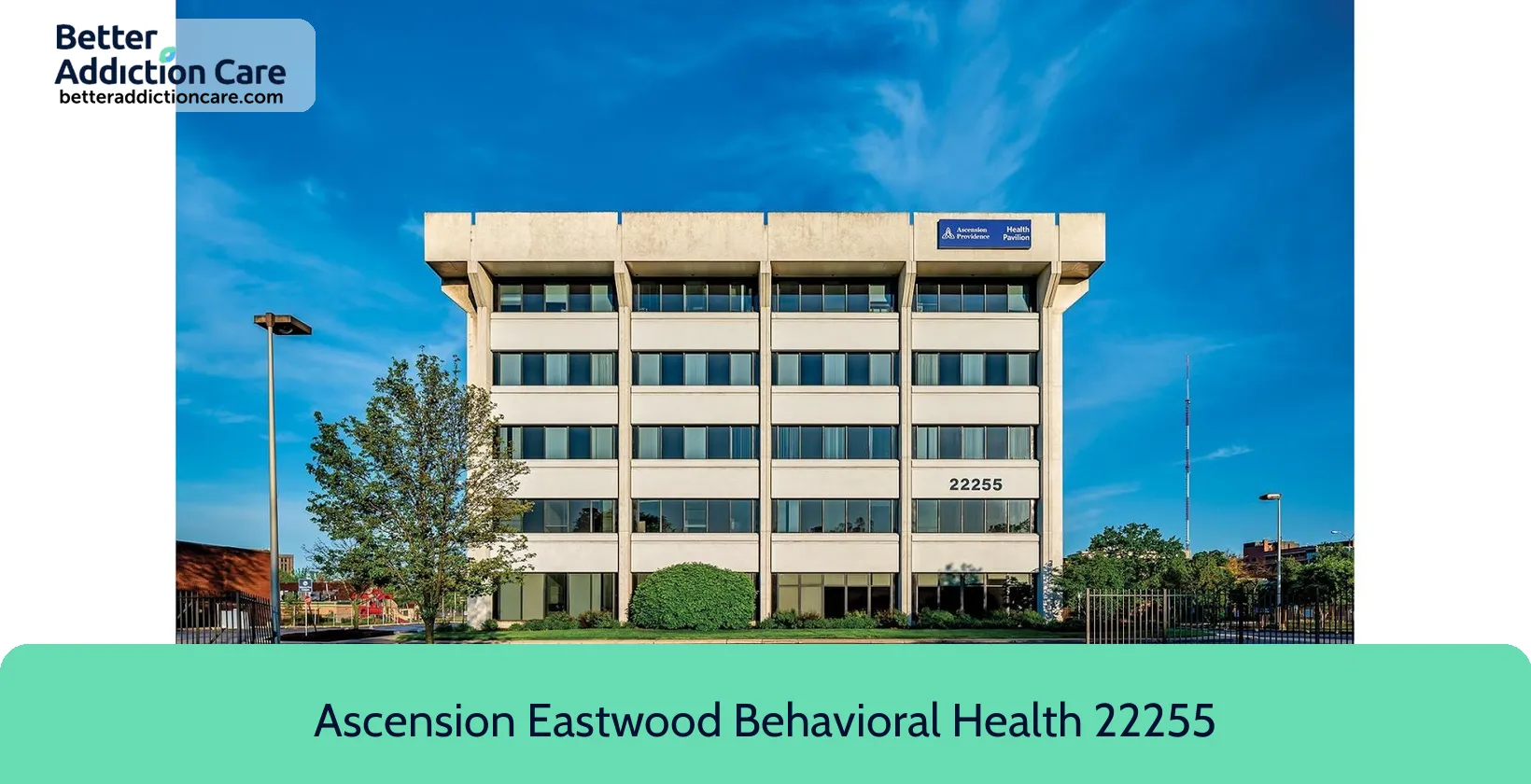
7.06
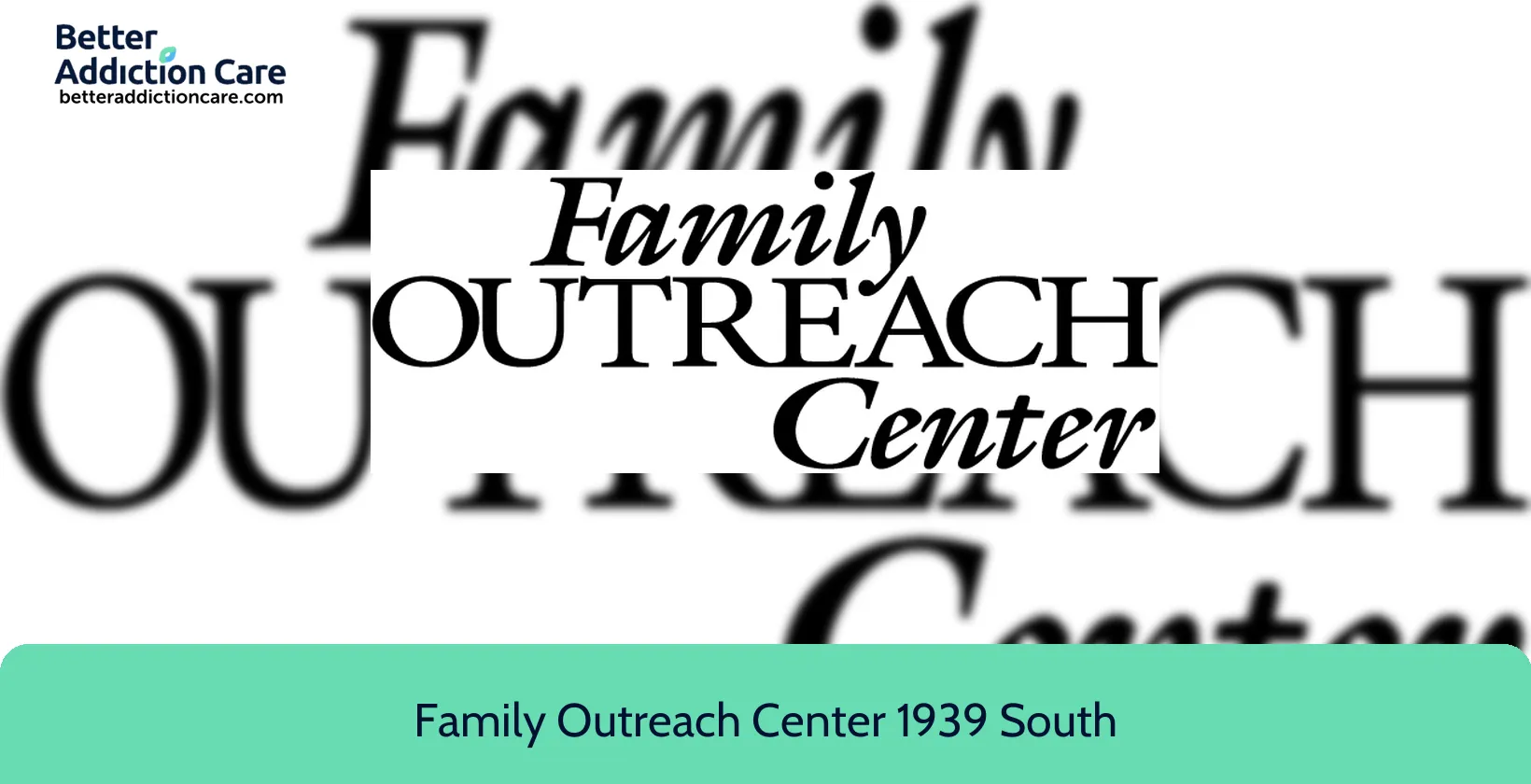
7.15
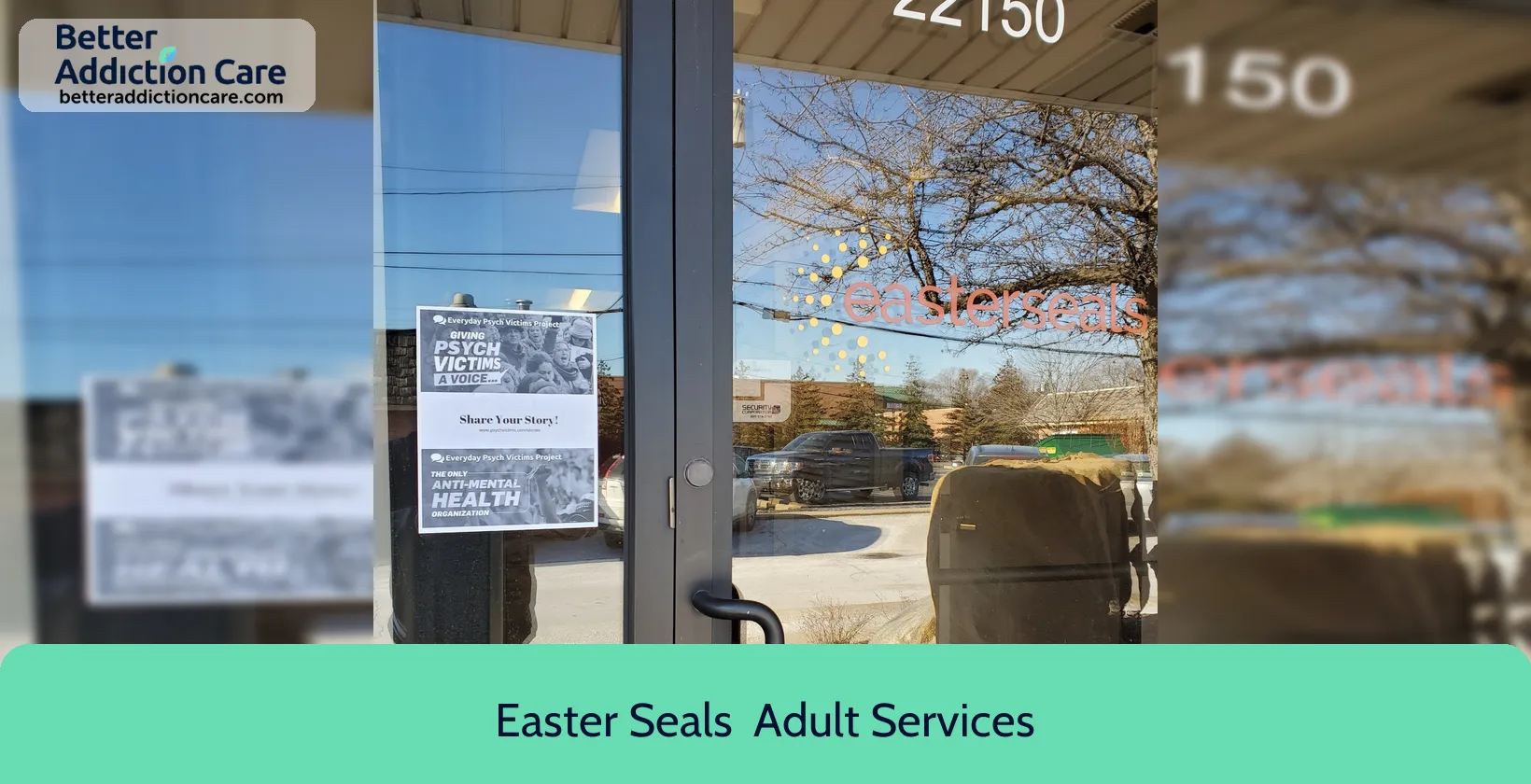
7.95

7.76
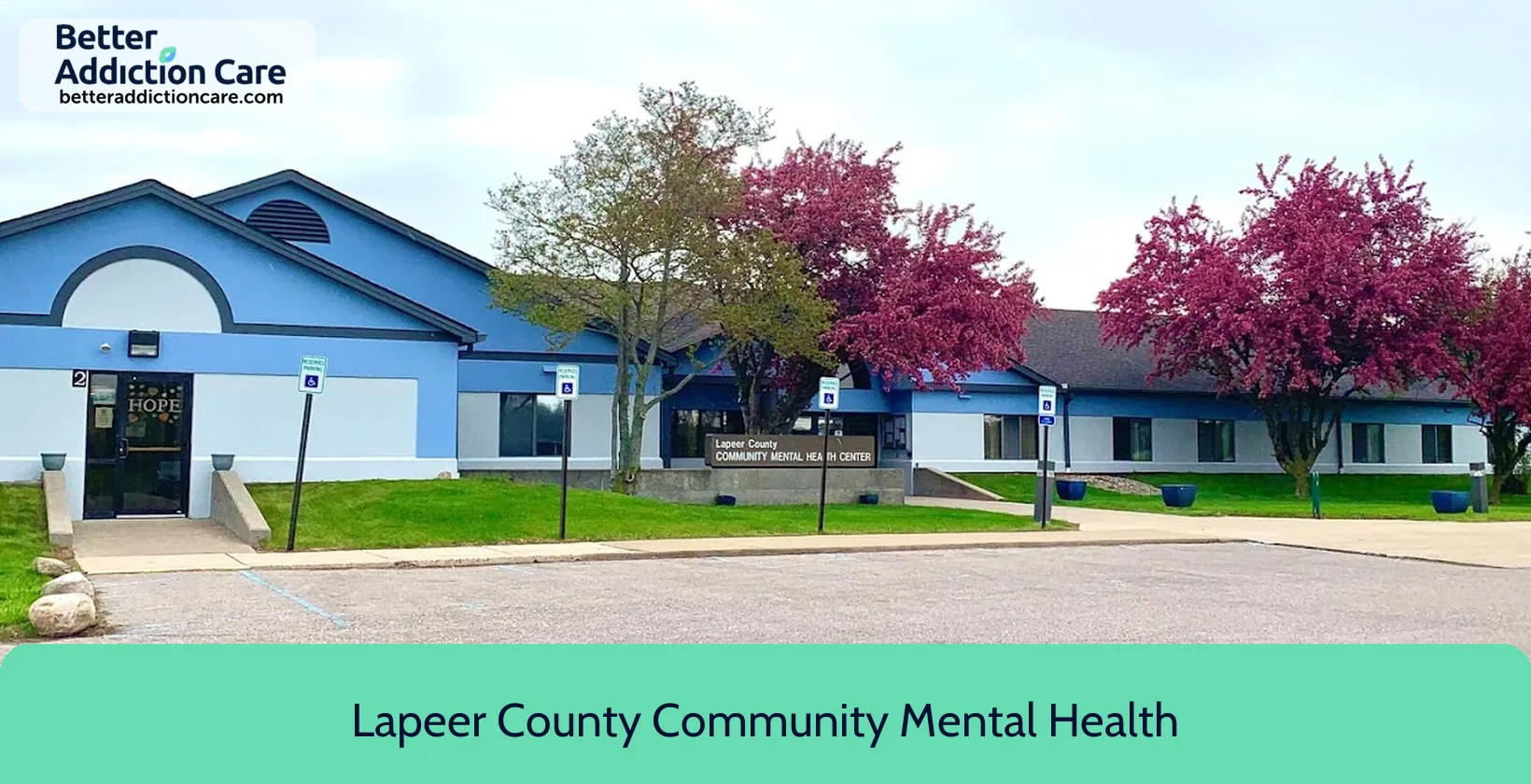
6.88
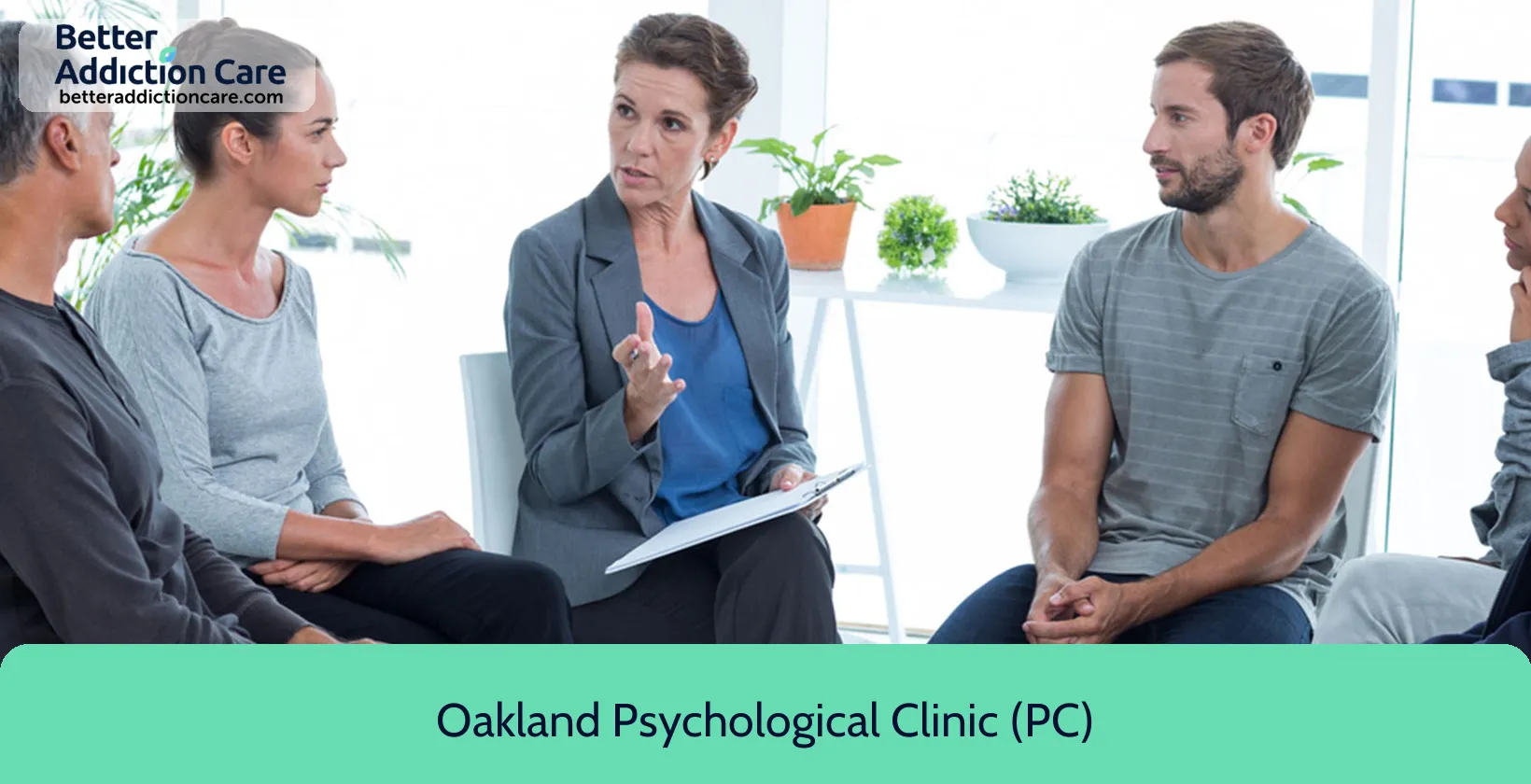
7.06
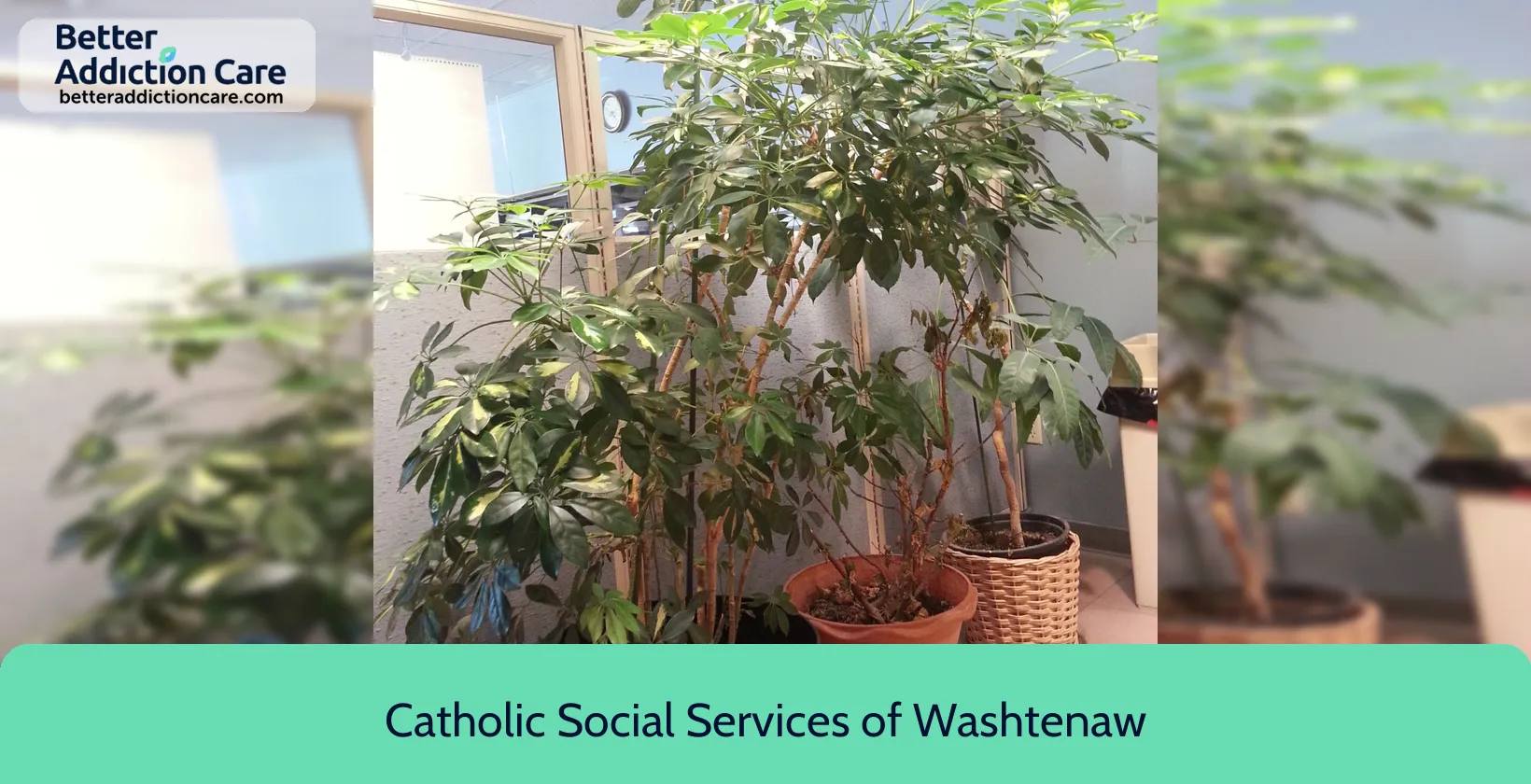
6.99
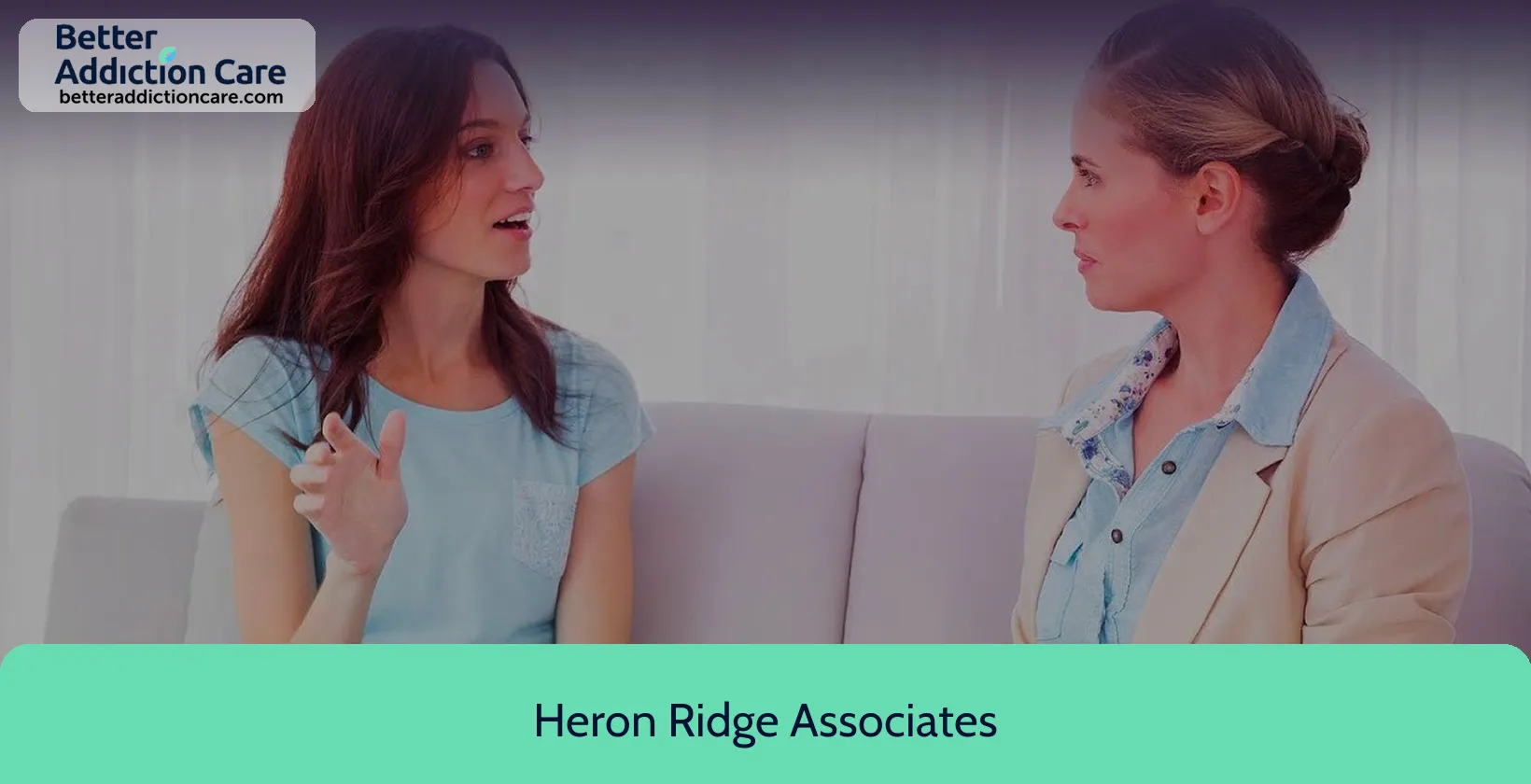
6.87
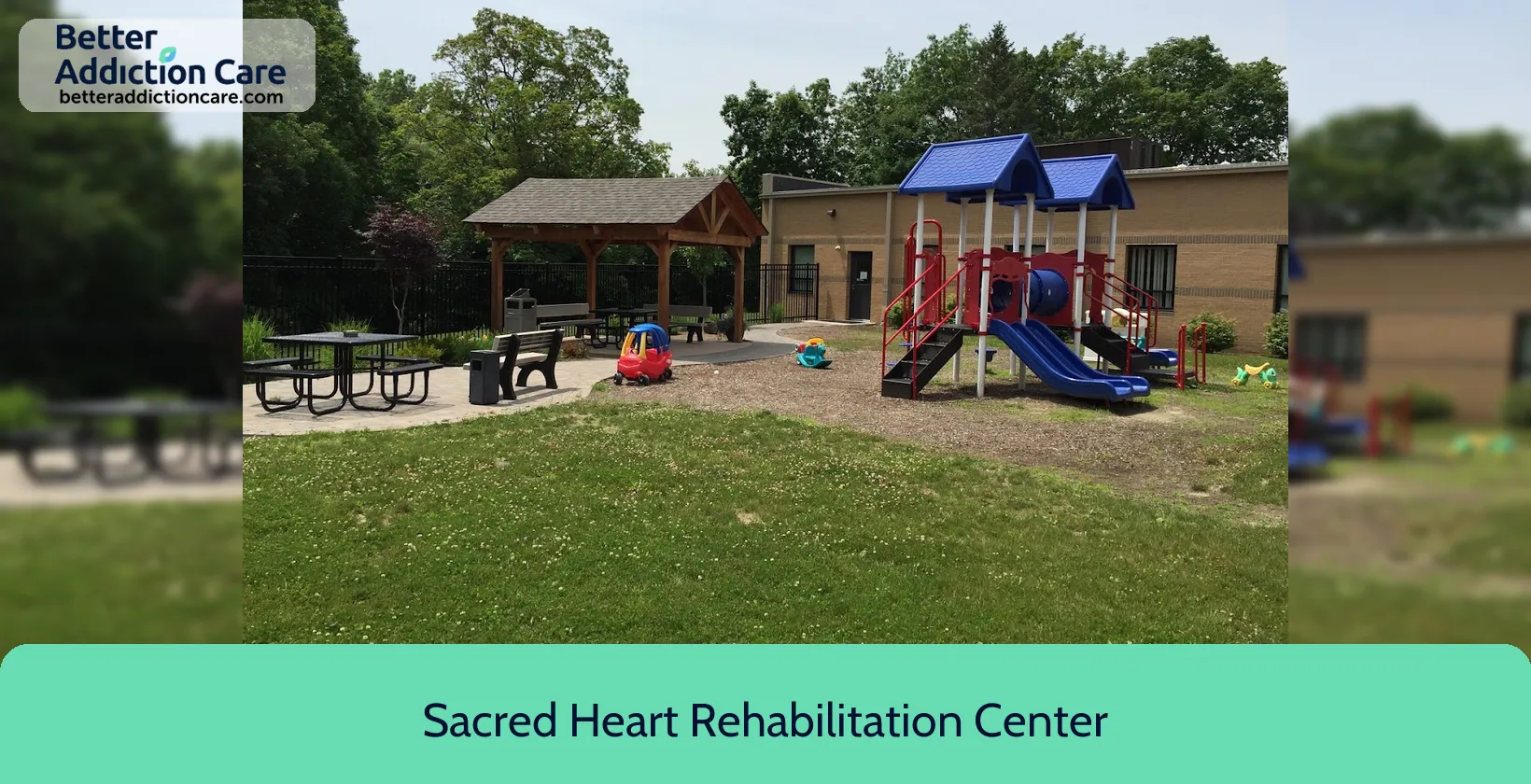
8.04

6.96
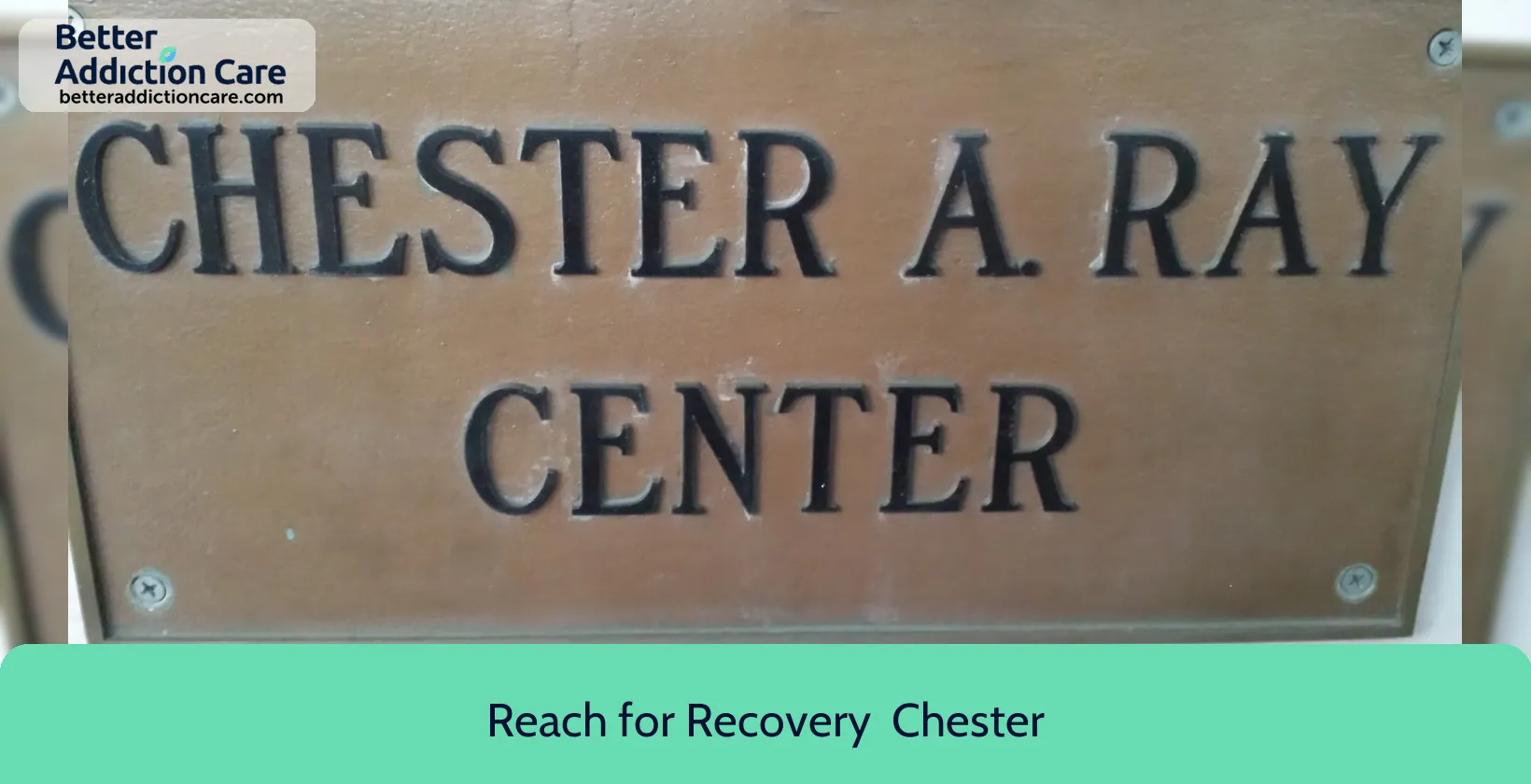
7.51
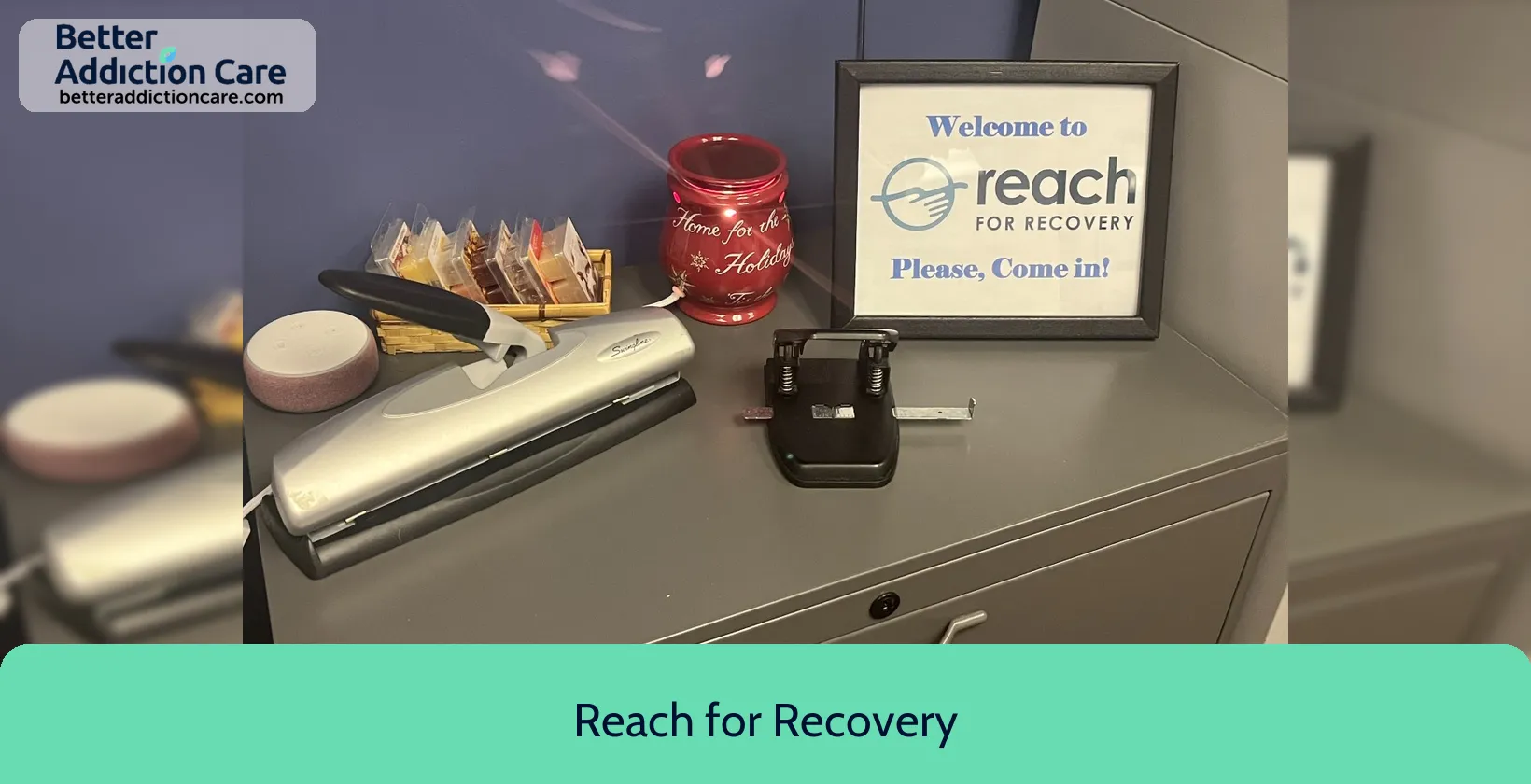
7.51

7.14
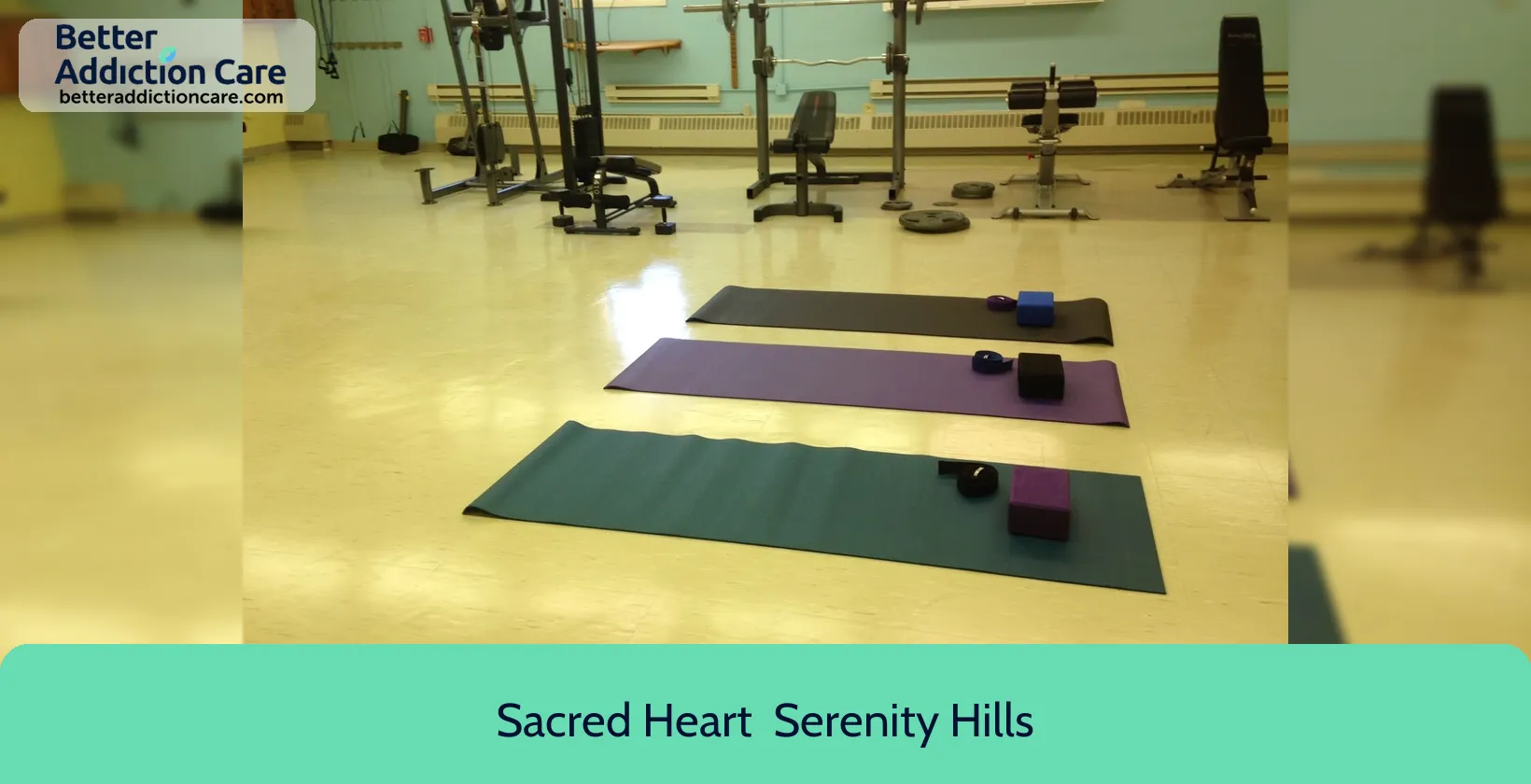
7.52
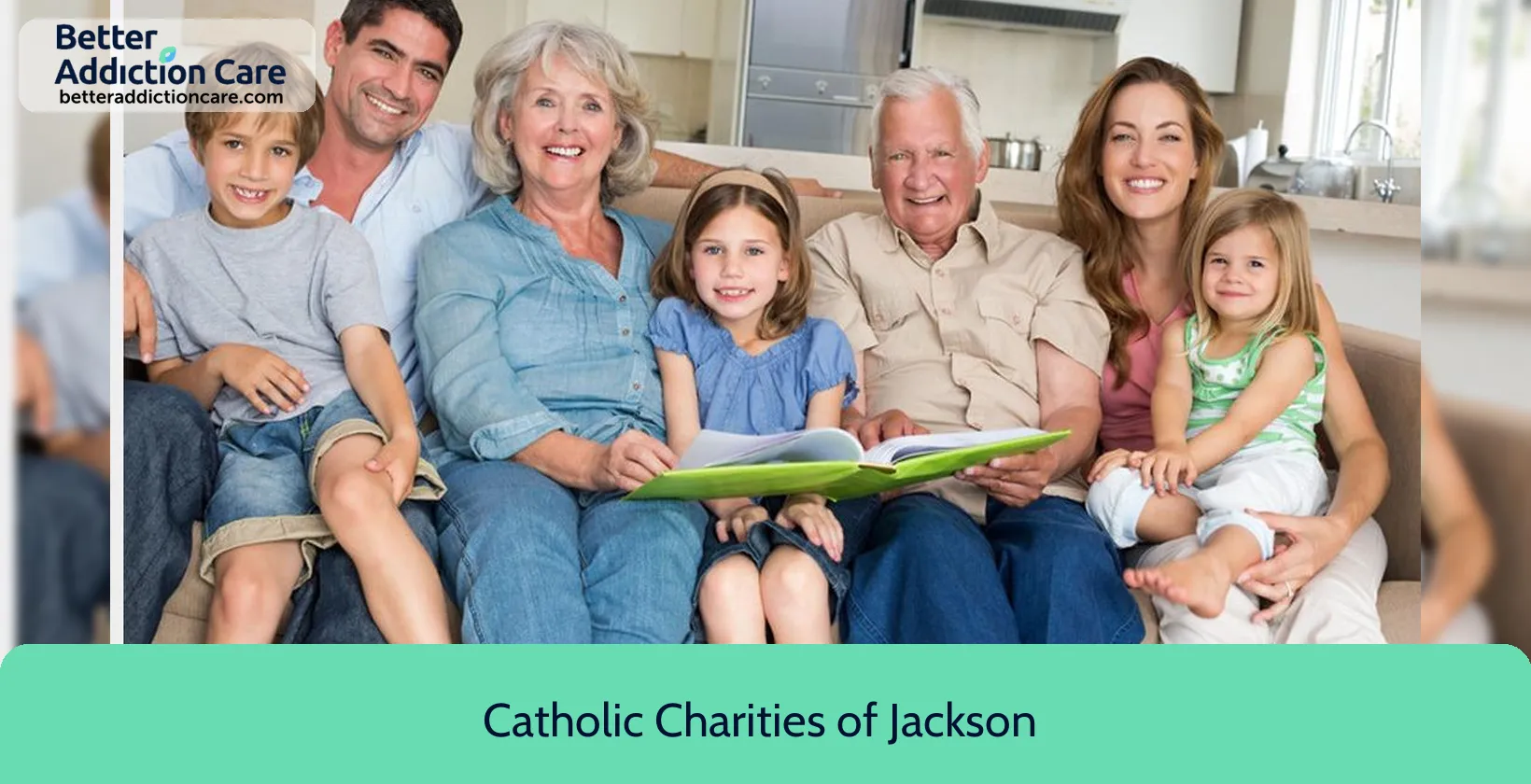
6.80
Substance abuse and Mental Health facilities Report for Michigan
13th
Cheapest To Most Expensive State Rank
505
Substance Abuse Facilities
47,072
Number of Patients Annually
44,561
Annual Enrollments
$80M
Spent on Outpatient Services (Million)
$1,706.00
Avg Outpatient Rehab Cost
2,388
Residential Admissions
$135M
Spent on Residential Treatment (Million)
$56,508.00
Residential Rehab Pay (Up To)
123
Total Patients
4
Free Drug Rehab Facilities
Alcoholism, Drug Abuse, Mental Health, and Treatment in Michigan
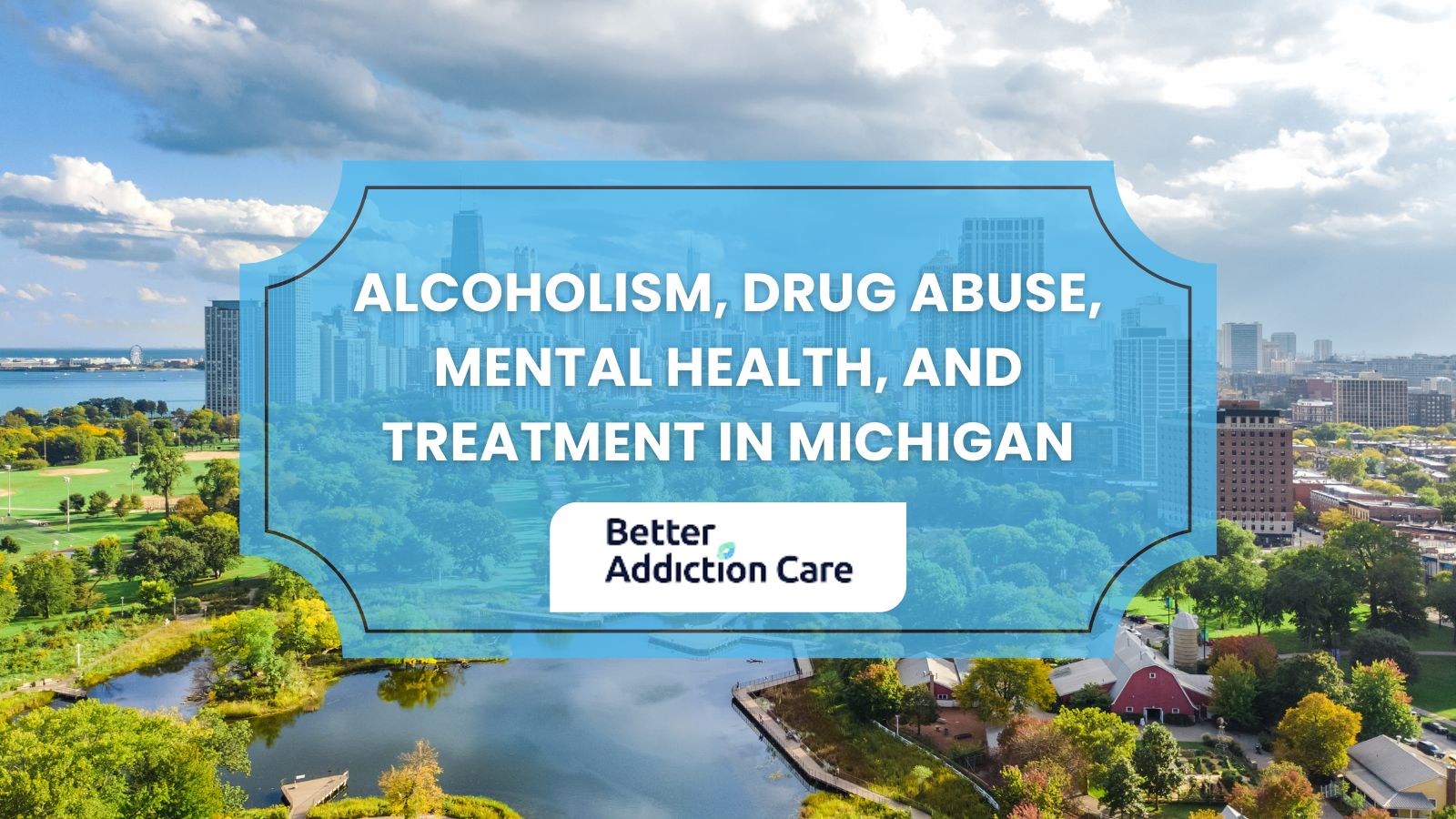
What are the main addictions people in Michigan suffer from?
The main addictions people in Michigan suffer from include:
- Alcohol Addiction: 850,000 individuals aged 12 and older, representing 9.91% of this age group, experience Alcohol Addiction. Among young adults aged 18 to 25, 163,000 individuals (15.55%) are affected. In the 26 and older demographic, 665,000 individuals (9.84%) have AUD. 490,000 (58%) Males are higher in number as compared to 360,000 (42%) females.
- Drug Addiction: 741,000 individuals aged 12 and older (8.64%) suffer from drug addiction. This includes 57,000 adolescents aged 12 to 17 (7.37%) and 177,000 young adults aged 18 to 25 (16.97%). 459,000 (62%) Males are higher in number as compared to 282,000 (38%) females.
- Opioid Addiction: 174,000 individuals aged 12 and older (2.02%) are affected by opioid addiction. This includes 7,000 adolescents aged 12 to 17 (0.85%) and 13,000 young adults aged 18 to 25 (1.29%). 99,000 (57%) Males are higher in number as compared to 75,000 (43%) females.
- Marijuana Addiction: 2.12 million individuals aged 12 and older (24.70%) have used marijuana in the past year. This includes 106,000 adolescents aged 12 to 17 (13.74%) and 451,000 young adults aged 18 to 25 (43.07%). 1,890,000 (89%) Males are higher in number as compared to 230,000 (11%) females.
- Tobacco Addiction: 1.88 million individuals aged 12 and older (21.93%) have used tobacco products in the past month. This includes about 21,000 adolescents aged 12 to 17 (2.72%) and 199,000 young adults aged 18 to 25 (19.03%). 990,000 (53%) Males are higher in number as compared to 890,000 (47%) females.
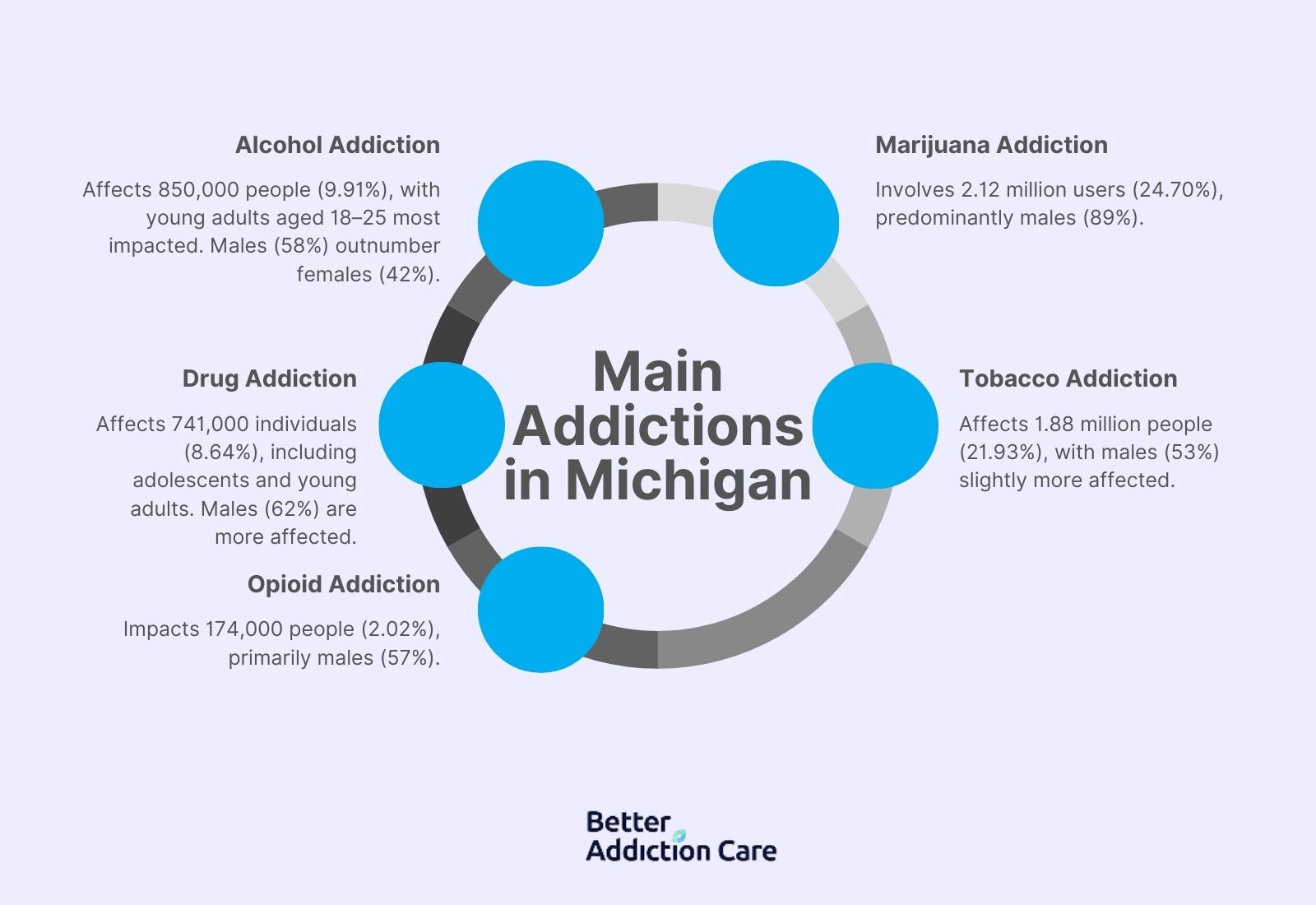
What is the cost of rehab centers in Michigan?
The cost of rehab centers in Michigan is $56,508, which equates to 82.5%. A 30-day inpatient program costs $56,000 (82%). Outpatient programs are generally less expensive, with costs averaging $8,286 (16%).
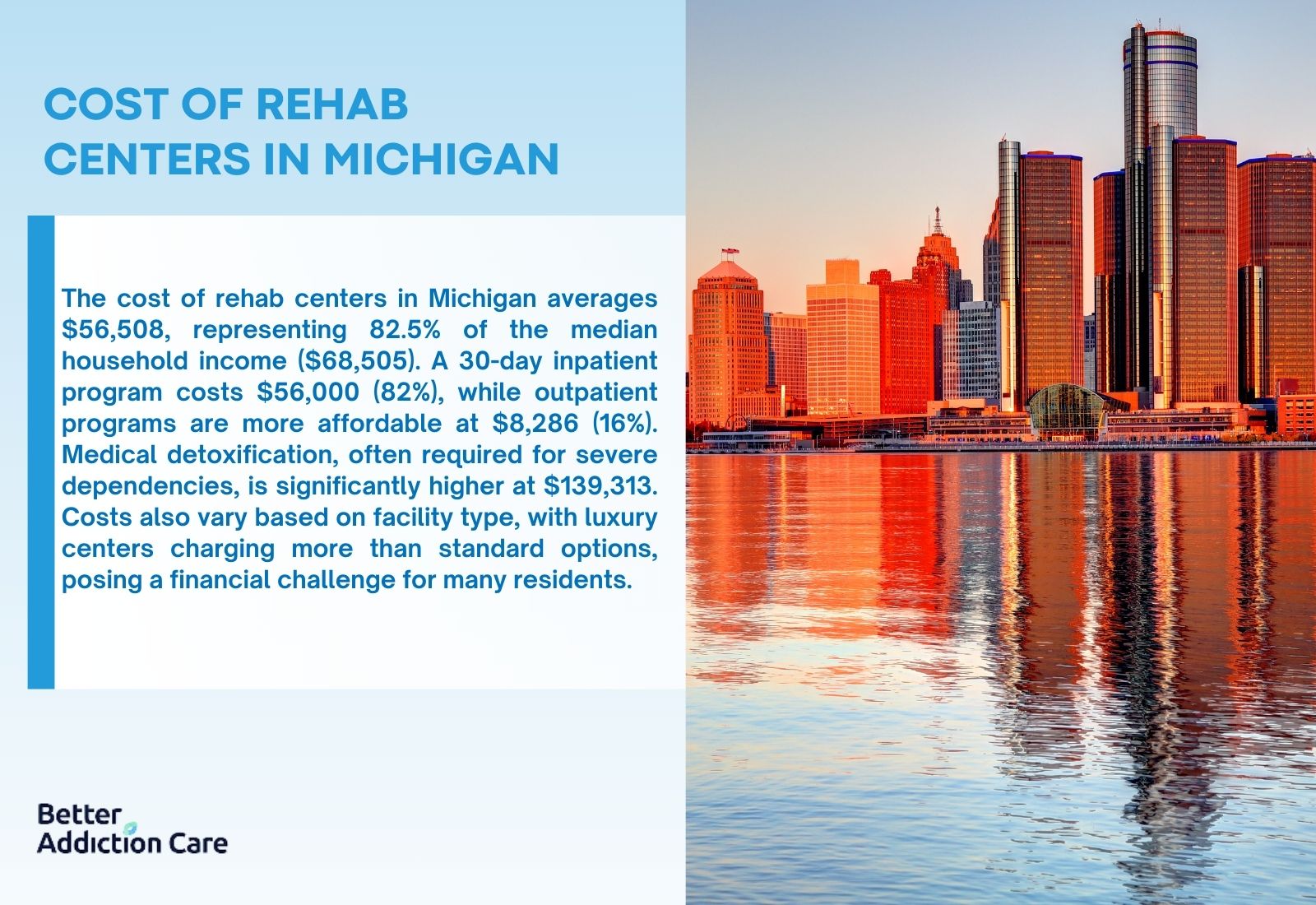
The type of addiction significantly impacts treatment costs of rehab centers in Michigan. For instance, medical detoxification, often necessary for severe alcohol or opioid dependencies, averages $139,313, which is about 146.5% higher than standard inpatient programs.
Michigan's median household income is $68,505. The cost of rehab centers in Michigan is $56,508 constitutes 82.5% of this annual income, indicating that such treatment may pose a significant financial burden for many residents.
The cost of rehab centers in Michigan also fluctuate depending on the facility type. Luxury rehab centers, offering premium amenities, have substantially higher costs than standard facilities.
What is the cost of LGBTQ+ rehab centers in Michigan?
The cost of LGBTQ+ rehab centers in Michigan is $55,008, which equates to 80%. A 30-day inpatient program costs $56,000 (82%). Outpatient programs are generally less expensive, with costs averaging $8,286 (16%).
The type of addiction significantly impacts treatment costs of LGBTQ+ rehab centers in Michigan. For instance, medical detoxification, often necessary for severe alcohol or opioid dependencies, averages $139,313, which is about 146.5% higher than standard inpatient programs.
Michigan's median household income is $68,505. The cost of LGBTQ+ rehab centers in Michigan is $55,008 constituting 80% of this annual income, indicating that such treatment may pose a significant financial burden for many residents.
The cost of LGBTQ+ rehab centers in Michigan also fluctuate depending on the facility type. Luxury rehab centers, offering premium amenities, have substantially higher costs than standard facilities.
What is the cost of Faith-Based rehab centers in Michigan?
The cost of Faith-Based rehab centers in Michigan is $54,890, which equates to 80%. A 30-day inpatient program costs $56,000 (82%). Outpatient programs are generally less expensive, with costs averaging $8,286 (16%).
The type of addiction significantly impacts treatment costs of Faith-Based rehab centers in Michigan. For instance, medical detoxification, often necessary for severe alcohol or opioid dependencies, averages $139,313, which is about 146.5% higher than standard inpatient programs.
Michigan's median household income is $68,505. The cost of Faith-Based rehab centers in Michigan is $54,890 constituting 80% of this annual income, indicating that such treatment may pose a significant financial burden for many residents.
The cost of Faith-Based rehab centers in Michigan also fluctuate depending on the facility type. Luxury rehab centers, offering premium amenities, have substantially higher costs than standard facilities.
What is the cost of Men-Only rehab centers in Michigan?
The cost of Men-Only rehab centers in Michigan is $56,000, which equates to 82%. A 30-day inpatient program costs $56,000 (82%). Outpatient programs are generally less expensive, with costs averaging $8,286 (16%).
The type of addiction significantly impacts treatment costs of Men-Only rehab centers in Michigan. For instance, medical detoxification, often necessary for severe alcohol or opioid dependencies, averages $139,313, which is about 146.5% higher than standard inpatient programs.
Michigan's median household income is $68,505. The cost of Men-Only rehab centers in Michigan is $56,000 constitutes 82% of this annual income, indicating that such treatment may pose a significant financial burden for many residents.
The cost of Men-Only rehab centers in Michigan also fluctuate depending on the facility type. Luxury rehab centers, offering premium amenities, have substantially higher costs than standard facilities.
What is the cost of Women-Only rehab centers in Michigan?
The cost of Women-Only rehab centers in Michigan is $53,000, which equates to 77%. A 30-day inpatient program costs $56,000 (82%). Outpatient programs are generally less expensive, with costs averaging $8,286 (16%).
The type of addiction significantly impacts treatment costs of Women-Only rehab centers in Michigan. For instance, medical detoxification, often necessary for severe alcohol or opioid dependencies, averages $139,313, which is about 146.5% higher than standard inpatient programs.
Michigan's median household income is $68,505. The cost of Women-Only rehab centers in Michigan is $53,000 constituting 77% of this annual income, indicating that such treatment may pose a significant financial burden for many residents.
The cost of Women-Only rehab centers in Michigan also fluctuate depending on the facility type. Luxury rehab centers, offering premium amenities, have substantially higher costs than standard facilities.
What is the cost of Teen rehab centers in Michigan?
The cost of Teen rehab centers in Michigan is $53,900, which equates to 79%. A 30-day inpatient program costs $56,000 (82%). Outpatient programs are generally less expensive, with costs averaging $8,286 (16%).
The type of addiction significantly impacts treatment costs of Teen rehab centers in Michigan. For instance, medical detoxification, often necessary for severe alcohol or opioid dependencies, averages $139,313, which is 146.5% higher than standard inpatient programs.
Michigan's median household income is $68,505. The cost of Teen rehab centers in Michigan is $53,900 constituting 79% of this annual income, indicating that such treatment may pose a significant financial burden for many residents.
The cost of Teen rehab centers in Michigan also fluctuate depending on the facility type. Luxury rehab centers, offering premium amenities, have substantially higher costs than standard facilities.
What is the cost of Young Adult rehab centers in Michigan?
The cost of Young Adult rehab centers in Michigan is $52,000, which equates to 76%. A 30-day inpatient program costs $56,000 (82%). Outpatient programs are generally less expensive, with costs averaging $8,286 (16%).
The type of addiction significantly impacts treatment costs of Young Adult rehab centers in Michigan. For instance, medical detoxification, often necessary for severe alcohol or opioid dependencies, averages $139,313, which is 146.5% higher than standard inpatient programs.
Michigan's median household income is $68,505. The cost of Young Adult rehab centers in Michigan is $52,000 constituting 76% of this annual income, indicating that such treatment may pose a significant financial burden for many residents.
The cost of Young Adult rehab centers in Michigan also fluctuate depending on the facility type. Luxury rehab centers, offering premium amenities, have substantially higher costs than standard facilities.
What is the cost of Luxury Rehab centers in Michigan?
The cost of Luxury Rehab centers in Michigan is $71,000, which equates to 103.6%. Luxury Rehab centers in Michigan offer high-end amenities and personalized care, with costs ranging from $32,000 to over $110,000 for a 30-day inpatient program. Outpatient programs are generally less expensive, with costs averaging $8,286 (16%).
The type of addiction significantly impacts treatment expenses. For instance, medical detoxification, often necessary for severe alcohol or opioid dependencies, averages $139,313, which is 146.5% higher than standard inpatient programs.
Michigan's median household income is $68,505. The cost of Luxury Rehab centers in Michigan, at $71,000, constitutes about 103.6% of the annual median household income, indicating that such treatment pose a substantial financial commitment.
The cost of Luxury Rehab centers in Michigan vary depending on the facility type. Luxury rehab centers, offering
What is the cost of Dual Diagnosis rehab centers in Michigan?
The cost of Dual Diagnosis rehab centers in Michigan is $50,508, which equates to 74%. A 30-day inpatient program costs $56,000 (82%). Outpatient programs are generally less expensive, with costs averaging $8,286 (16%).
The type of addiction significantly impacts treatment costs of Dual Diagnosis rehab centers in Michigan. For instance, medical detoxification, often necessary for severe alcohol or opioid dependencies, averages $139,313, which is about 146.5% higher than standard inpatient programs.
Michigan's median household income is $68,505. The cost of Dual Diagnosis rehab centers in Michigan is $50,508 constituting 74% of this annual income, indicating that such treatment may pose a significant financial burden for many residents.
The cost of Dual Diagnosis rehab centers in Michigan also fluctuate depending on the facility type. Luxury rehab centers, offering premium amenities, have substantially higher costs than standard facilities.
Is drug abuse and addiction a problem in Michigan?
Yes, drug abuse and addiction is a problem in Michigan. The state of Michigan has experienced a substantial increase in drug overdose deaths over the years, with a six fold rise from 2003 to 2024. In 2024, fentanyl and other synthetic opioids were involved in 74% of total overdose deaths in Michigan, highlighting the severity of the opioid crisis. The prevalence of substance addiction among Michigan residents further underscores the issue. According to the National Survey on Drug Use and Health, 1.66 million individuals aged 12 or older reported illicit drug use in the past month during 2023-2024.
This widespread substance use contributes to various social and economic challenges within the state of Michigan. Efforts to address the problem include the implementation of the Michigan Automated Prescription System (MAPS), which reported a 10.7% decrease in opioid prescriptions dispensed between 2019 and 2024. However, despite these measures, the persistent high rates of drug abuse and addiction indicate that Michigan continues to grapple with this critical public health issue.
Is alcoholism a problem in Michigan?
Yes, alcoholism is a problem in Michigan. Between 2019 and 2024, alcohol-related traffic crashes involving drivers aged 21 and older resulted in an annual average of 1,077 deaths and serious injuries. This statistic underscores the substantial impact of alcohol misuse.
The prevalence of binge drinking among adults further highlights the issue. In 2024, 17.9% of Michigan adults aged 18 and over reported engaging in binge drinking, defined as consuming five or more drinks on a single occasion for men, and four or more for women. This behavior increases the risk of various health problems, including liver disease and unintentional injuries.
Over the years, alcohol-induced mortality rates have shown an upward trend. In 2004, the age-adjusted alcohol-induced death rate in Michigan was 6.3 per 100,000 population. By 2024, this rate had risen to 13.8 per 100,000, indicating a more than twofold increase over two decades. This escalation reflects the growing severity of alcohol-related health issues in the state of Michigan
These statistics demonstrate that alcoholism remains a critical public health concern in Michigan, affecting individuals, families, and communities across the state of Michigan.
Is Mental Health a Problem in Michigan?
Yes, mental health is a problem in Michigan. 1.47 million Adults in the state of Michigan are living with a mental health condition, which is more than seven times the population of Grand Rapids. This prevalence indicates that a substantial portion of Michigan's population is affected by mental health issues.
Access to mental health care remains a challenge for many residents. Of the 421,000 adults in Michigan who did not receive needed mental health care, 38.4% cited cost as a barrier. 4.2 million People in the state of Michigan live in areas lacking sufficient mental health professionals, highlighting a significant gap in service availability.
The COVID-19 pandemic has exacerbated mental health issues. In February 2024, 39.9% of adults in Michigan reported symptoms of anxiety or depression, with 27% unable to access necessary counseling or therapy. This surge underscores the increasing demand for mental health services and the existing challenges in meeting this need.
Over the years, Michigan has seen a rise in mental health challenges. For instance, the percentage of Michigan adults reporting poor mental health increased from 12.1% in 2021 to 25.3% in 2024, nearly doubling in just two years. This trend reflects the growing severity of mental health issues among residents. These statistics highlight the pressing need for enhanced mental health services and support systems in Michigan to address the escalating crisis affecting its residents.
Can you travel to Michigan for rehab?
Yes, you can travel to Michigan for rehab, and there are compelling reasons why Michigan stands out as an ideal destination for recovery. Michigan offers a unique combination of high-quality treatment options, serene natural settings, and accessibility, making it an excellent choice for those seeking rehabilitation services.
One of the key advantages of Michigan is its extensive network of top-tier rehab centers. The state of Michigan boasts a wide range of facilities, from luxury rehab centers to those offering specialized programs, such as LGBTQ+ support or trauma-focused care. These centers are equipped with experienced professionals who provide comprehensive treatment plans tailored to individual needs. This diversity of care ensures that people find programs that address their specific challenges, enhancing the likelihood of long-term recovery.
Michigan’s natural beauty is another factor that sets it apart. The state of Michigan is home to the Great Lakes, lush forests, and tranquil countryside, which create an ideal environment for healing and reflection. Many rehab facilities integrate nature into their programs, offering outdoor activities like hiking, kayaking, and meditation by the water. This connection with nature not only helps individuals de-stress but also supports mental and emotional well-being, which is crucial for successful recovery.
Lastly, Michigan’s central location and affordability make it accessible for individuals from various parts of the United States. Compared to coastal states with higher costs of living, Michigan provides cost-effective rehab options without compromising quality. Its major cities, such as Detroit and Grand Rapids, are easily reachable by air or road, making it a convenient choice for out-of-state residents seeking effective care.
These factors like high-quality facilities, the restorative power of nature, and accessibility—make Michigan a standout option for those considering traveling for rehab. Its unique offerings ensure a holistic and supportive environment for anyone embarking on the journey to recovery.
Can addiction be treated in Michigan?
Yes, addiction can be treated in Michigan, and there are three key reasons for this.
Firstly, Michigan has a well-established network of rehab facilities offering diverse treatment programs tailored to individual needs. From inpatient and outpatient services to specialized care for co-occurring mental health conditions, these centers employ evidence-based approaches, such as cognitive-behavioral therapy, medication-assisted treatment (MAT), and holistic therapies. This comprehensive range of services ensures that individuals access the type of care best suited to their situation.
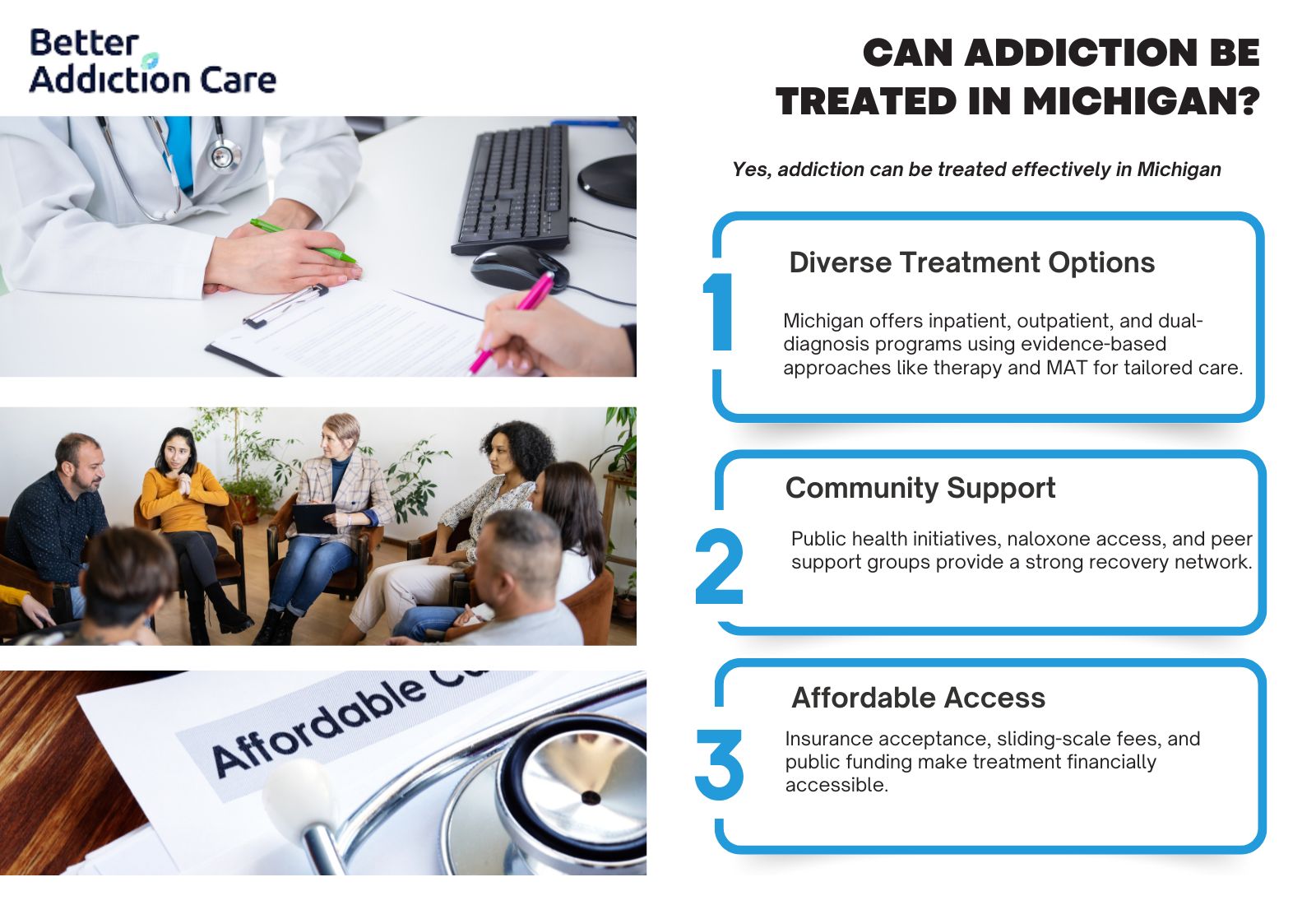
Secondly, the state of Michigan actively supports recovery through community-based initiatives and public health programs. Michigan has implemented harm reduction strategies, such as needle exchange programs and the distribution of naloxone to combat opioid overdoses. Recovery support groups and peer counseling services are widely available, providing individuals with a strong network of resources during and after treatment.
Thirdly, Michigan prioritizes accessibility and affordability in addiction treatment. Many facilities accept various forms of insurance, including Medicaid, while some offer sliding-scale fees to accommodate those with financial constraints. Combined with state and federal funding for public health programs, this focus on affordability helps ensure that treatment is within reach for all residents.
These factors like comprehensive care, community support, and accessibility—make Michigan a reliable and effective location for treating addiction and fostering long-term recovery.
What is the state of Michigan?
The state of Michigan is in the Great Lakes region of the United States, is bordered by Ohio to the south, Indiana to the southwest, and Wisconsin to the west. It also shares water boundaries with Illinois and Minnesota across Lake Michigan and Lake Superior, respectively. Michigan is uniquely divided into two peninsulas: the Lower Peninsula, often noted for its mitten-like shape, and the Upper Peninsula, which is more sparsely populated and rich in natural resources. As of July 1, 2024, Michigan's population was 10,037,261. The gender distribution is 50.8% female and 49.2% male.
Economically, Michigan ranks 14th in size among U.S. states and Washington, D.C., accounting for 2.4% of the national economy as of the third quarter of 2024. The state of Michigan's economy is diverse, encompassing manufacturing, agriculture, and services. However, Michigan has faced economic challenges, including a higher unemployment rate compared to the national average. In November 2024, Michigan's unemployment rate was 4.3%, slightly above the U.S. overall rate. These factors suggest that Michigan's economic status is moderate, with both strengths and areas needing improvement.
What is the population of Michigan?
The population of Michigan is 10,033,757, with a nearly balanced gender distribution of 50.8% female (5,095,000 individuals) and 49.2% male (4,938,000 individuals). Age-wise, the population reflects diverse demographics. Individuals under 18 years account for 2,109,759 people, or 21.0% of the total. The 18 to 44 age group is the largest, comprising 3,483,209 individuals, representing 34.7% of the population. Those aged 45 to 64 total 2,560,711 people, making up 25.5%, while the senior population aged 65 and over includes 1,880,078 individuals, constituting 18.7%. This demographic breakdown highlights Michigan's balanced age and gender composition, with a significant portion of its residents in the working-age bracket.
What is the income of people from Michigan?
The income of people from Michigan is $37,929, per capita income. In Michigan, the median household income is $69,183
Income levels vary across different age groups and between genders. Individuals in the 45 to 64 age bracket earn higher incomes compared to younger and older age groups, reflecting career progression and experience. Gender disparities persist, with men generally earning more than women, a trend influenced by various factors including occupational segregation and differences in work experience. These figures highlight the economic landscape in Michigan, emphasizing the importance of addressing income inequality and supporting economic growth across all demographics.





